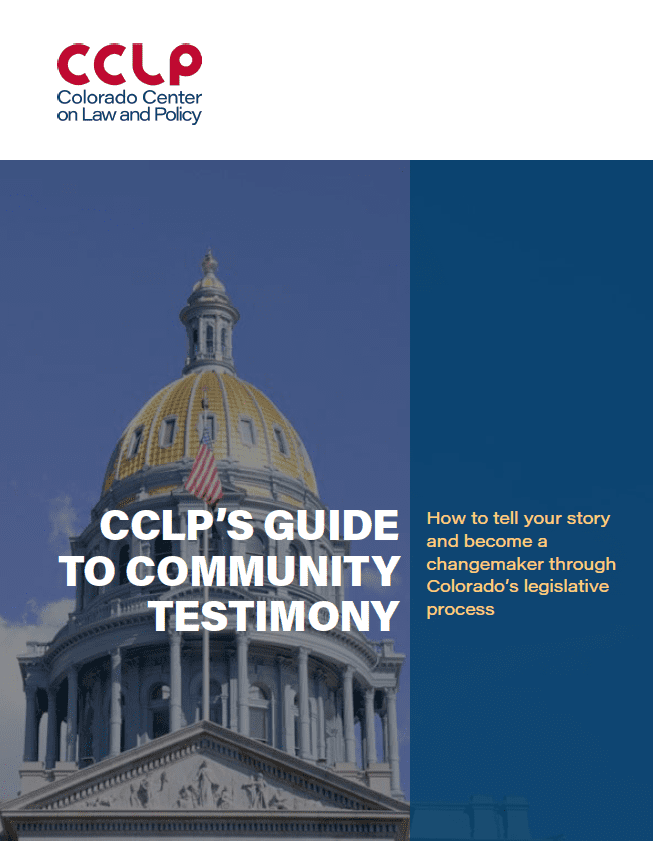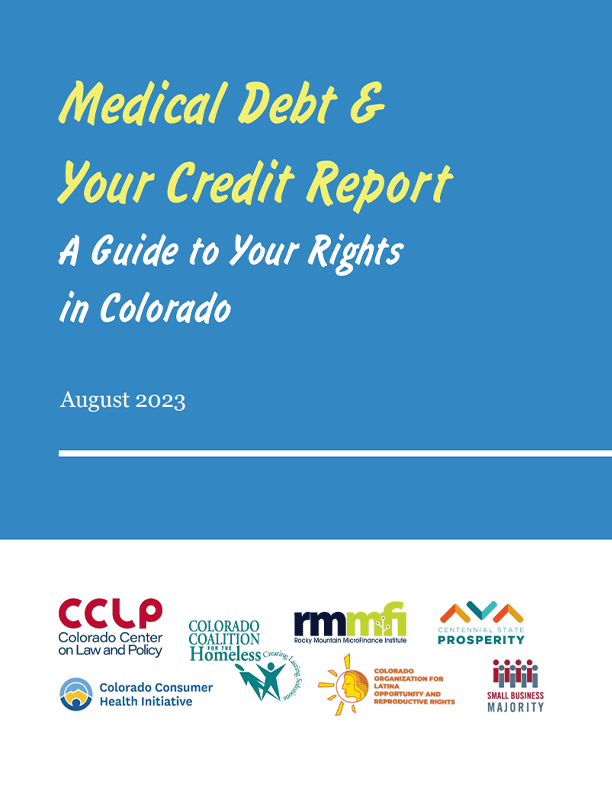
Medical Debt & Your Credit Report: Know Your Rights Resources / La deuda médica y su informe de crédito: Recursos para conocer sus derechos
Published on: August 11, 2023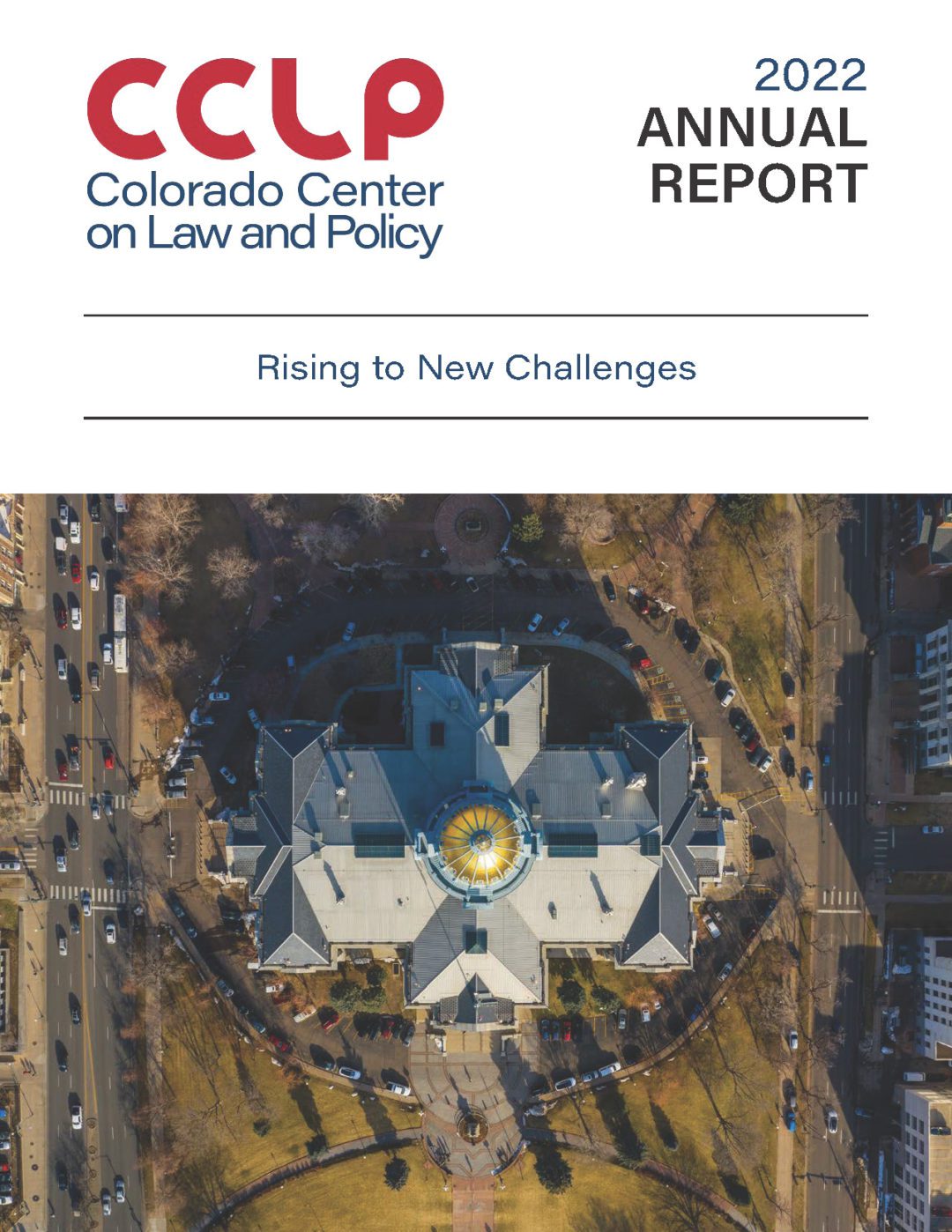
CCLP Annual Report 2022
Colorado Center on Law and Policy releases its annual report each year to share stories of impact from the past year, to affirm our mission and progress toward our vision of a Colorado in which everyone has what they need to succeed, to provide financial statements indicating the fiscal health of the organization, and to acknowledge the many funders and philanthropic organizations who make our work possible.
Published on: May 23, 2023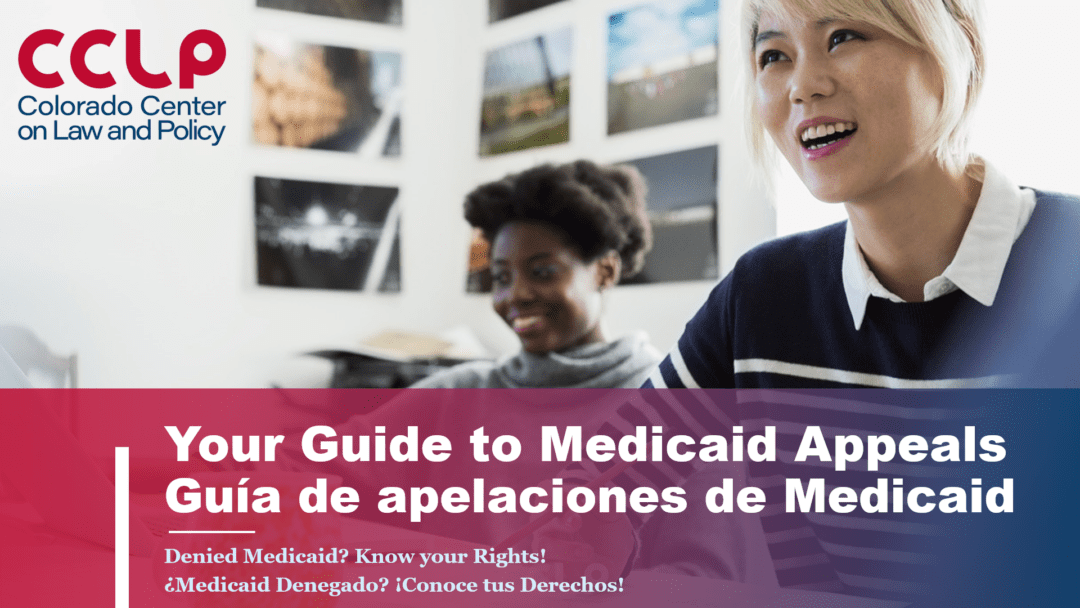
Intro to Medicaid Appeals Guides / Intro a las guías de apelación de Medicaid
Katie Wallat presented our Medicaid Appeals Webinar where she introduced our 3 Medicaid Appeals Guides.
Published on: May 19, 2023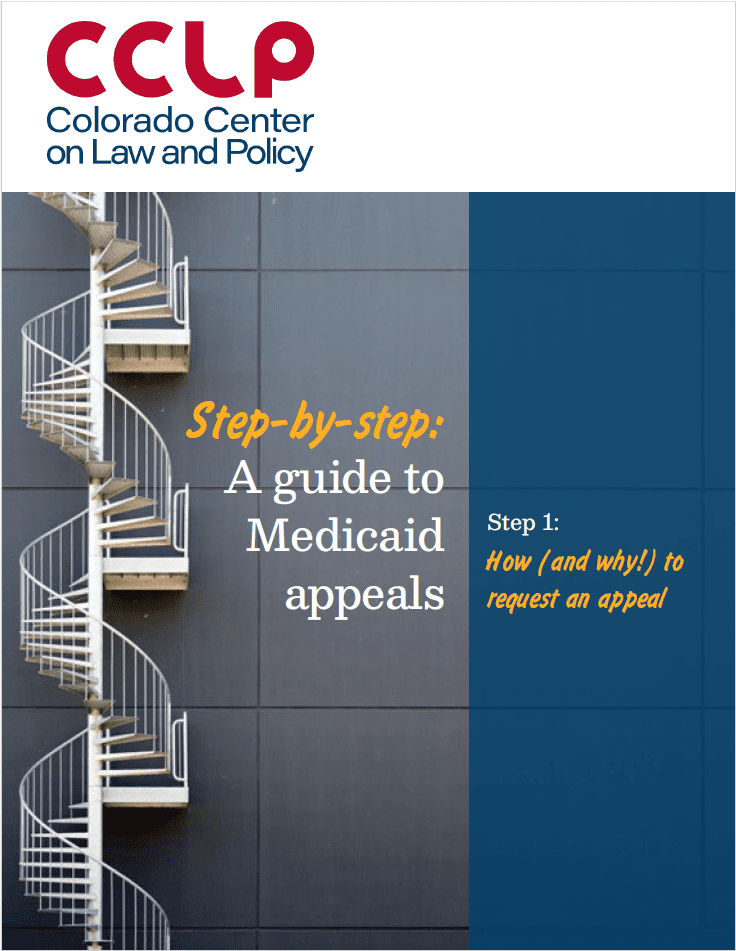
Medicaid Appeals Guides / Las Guías de apelaciones de Medicaid
3 Medicaid Appeals Guides to help community members better understand their rights and how best to utilize these resources.
Published on: May 16, 2023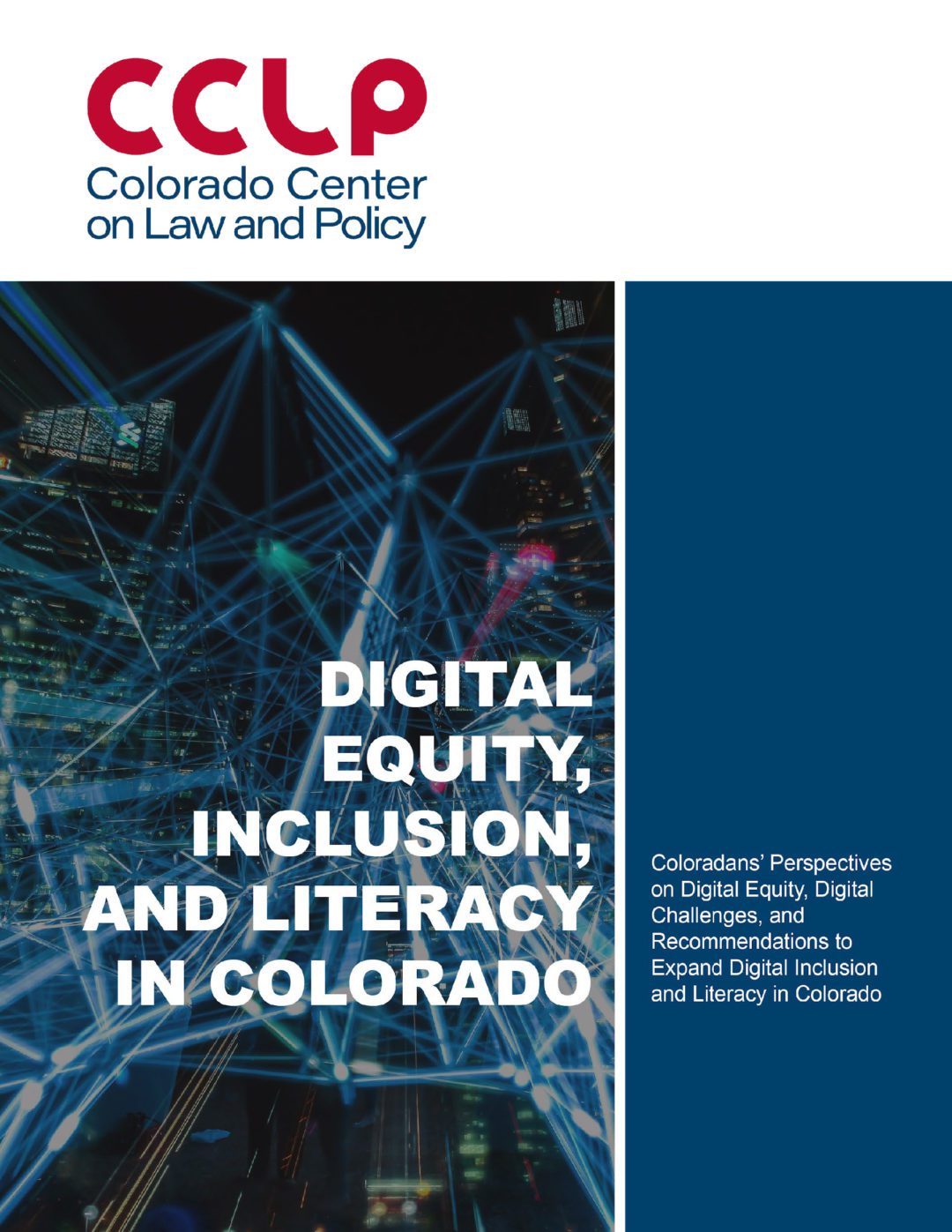
Digital Equity, Inclusion, and Literacy in Colorado
This report investigates perspectives on digital equity challenges, and explores ways to expand digital inclusion and literacy in Colorado. Prepared for the Office of the Future of Work, Colorado Department of Labor and Employement (CDLE).
Published on: April 28, 2023
Self-Sufficiency Standard for Colorado 2022
Prepared every few years for CCLP by the Center for Women’s Welfare at the University of Washington, the Self-Sufficiency Standard calculates how much income a family must earn to meet basic needs without public or private assistance based on family composition in each of Colorado’s 64 counties.
Published on: November 16, 2022Amicus Brief: French v Centura Health
French v Centura Health – Amici Brief
Published on: May 27, 2022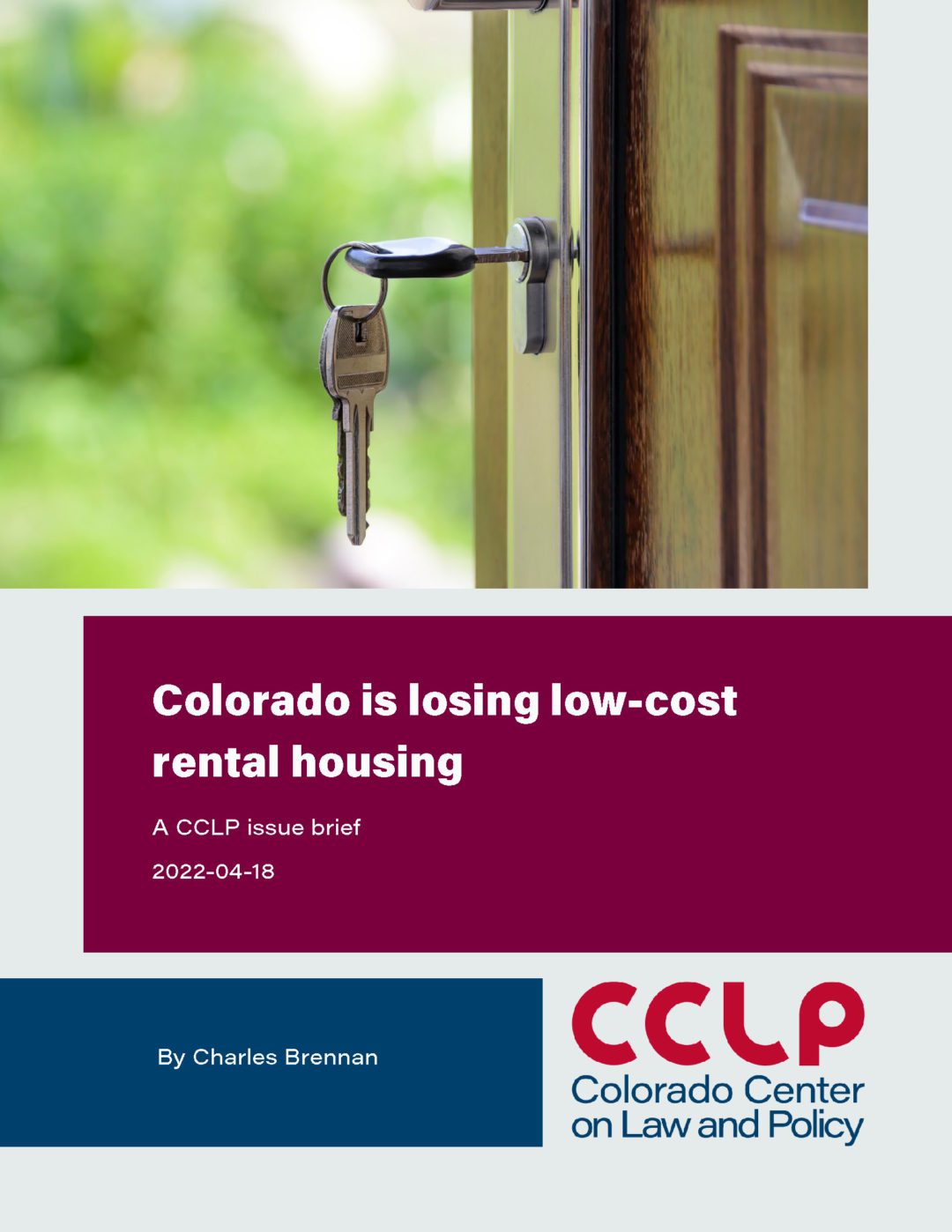
Issue Brief: Colorado is losing low-cost rental housing
In this issue brief, we examine changes in the stock of low-cost rental units in Colorado between 2010 and 2019. We also look at the types of rental housing that were most likely to be low-cost rentals, as well as a select economic characteristics of renters who lived in these housing units in 2019.
Published on: April 22, 2022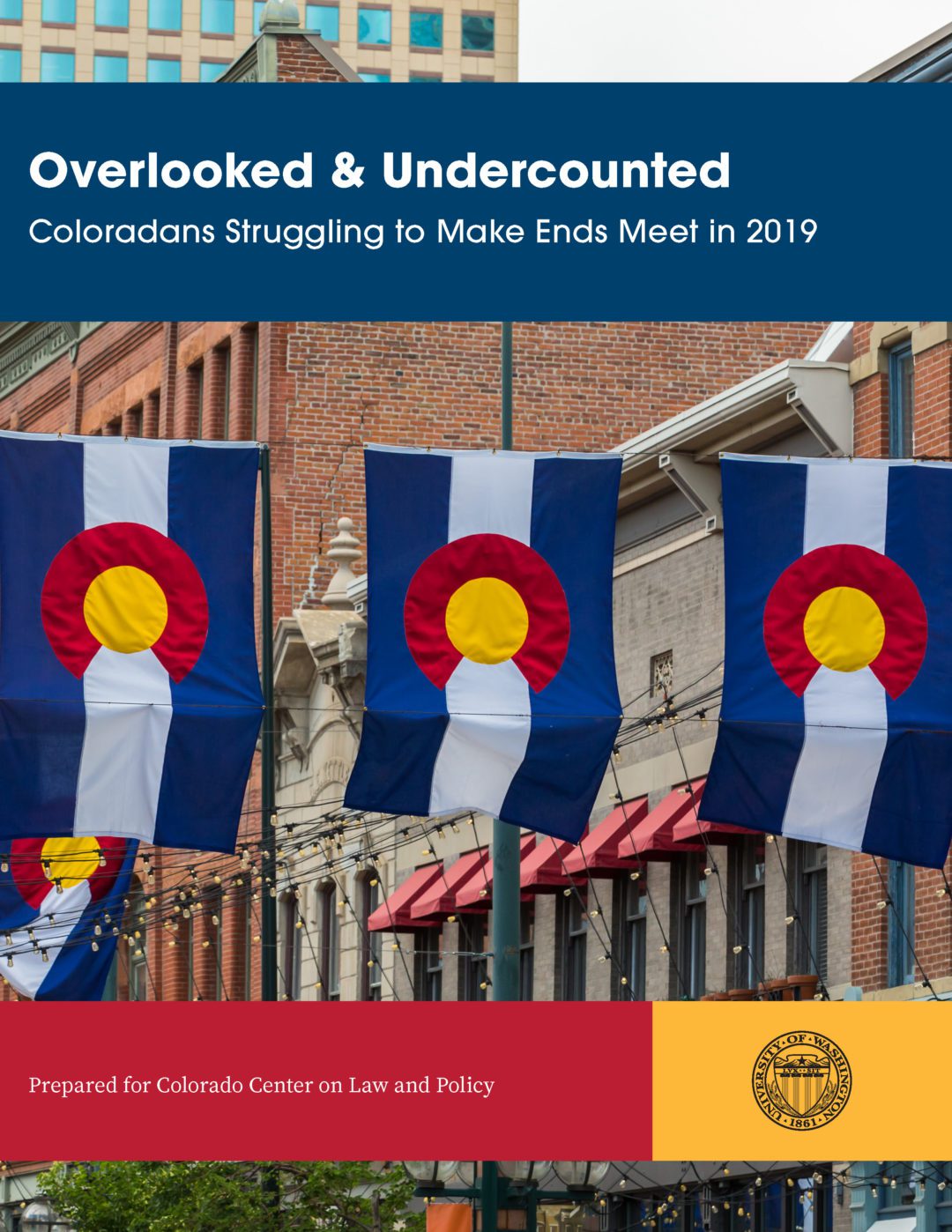
Overlooked and Undercounted 2022
Based on the 2019 data, this edition of “Overlooked and Undercounted” reveals which Colorado families were struggling to make ends meet — even before the start of the pandemic.
Published on: March 14, 2022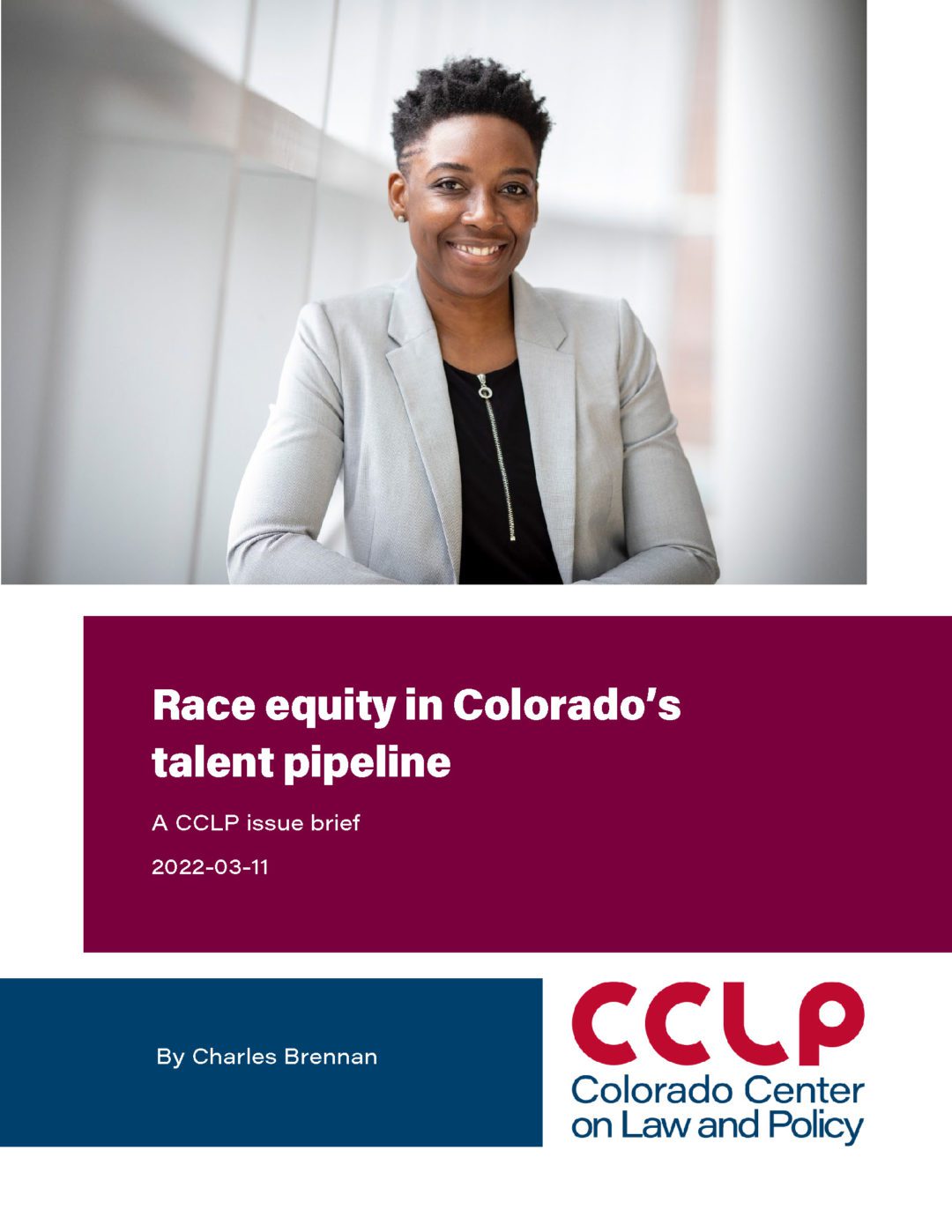
Issue brief: Race equity in Colorado’s talent pipeline
Each year, the Colorado Department of Labor and Employment, the Colorado Department of Higher Education, the Colorado Department of Education, and the Colorado Workforce Development Council release a Talent Pipeline Report that identifies areas of opportunity and demand in Colorado’s labor market and highlights outcomes of certain statewide workforce development programs. This issue brief breaks down the key takeaways and stand-out statistics from this year’s report.
Published on: March 11, 2022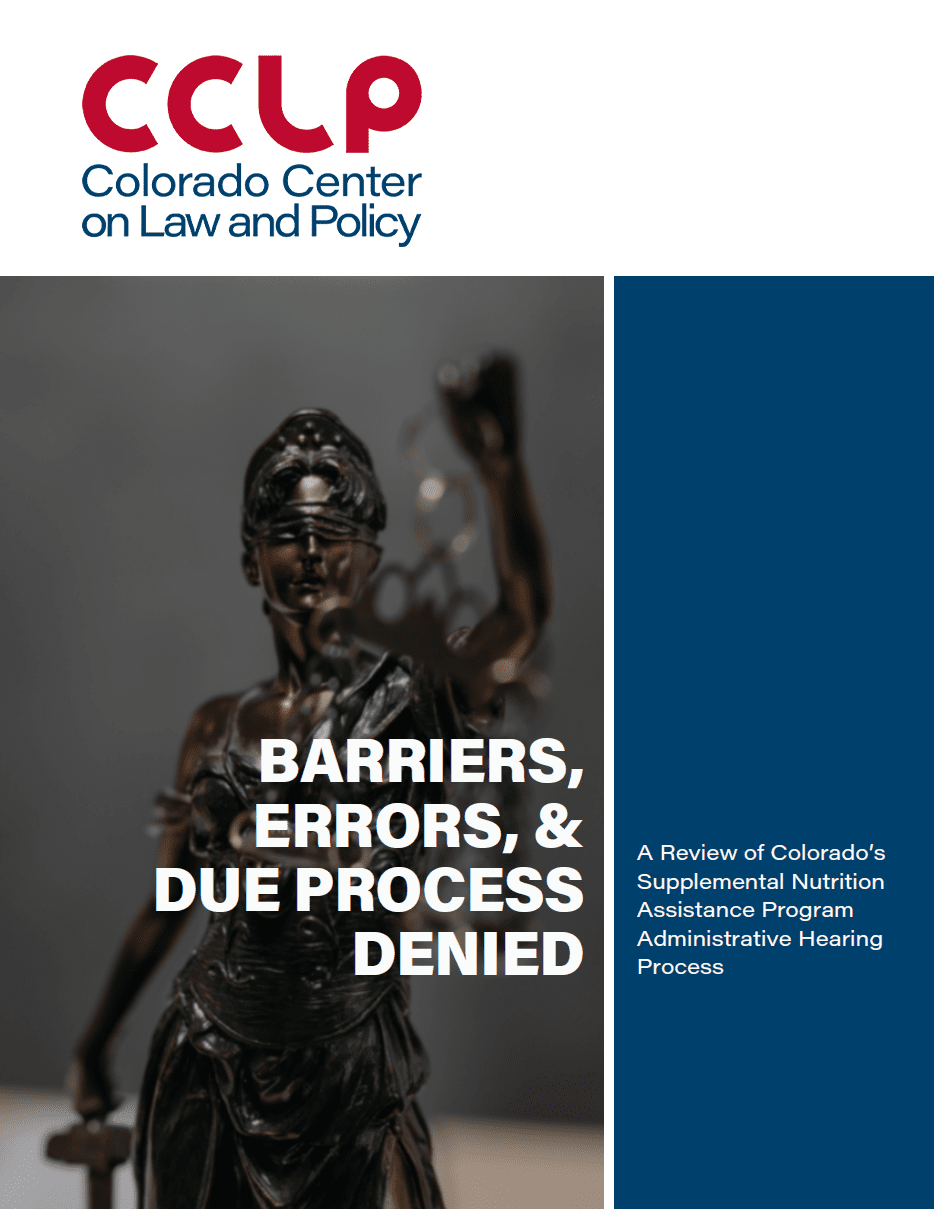
Barriers, Errors & Due Process Denied: A Review of Colorado’s Supplemental Nutrition Assistance Program Administrative Hearing Process
From October 2020 to February 2022, Colorado Center on Law and Policy (CCLP) conducted research on SNAP disputes and the processes and outcomes of the administrative hearing process in Colorado. CCLP staff combed through over two thousand pages of 2019 hearing decisions, analyzed state and federal data, and heard directly from Coloradans who experienced challenges with their SNAP benefits and the administrative hearing process firsthand. CCLP found that many SNAP beneficiaries encounter problems but do not successfully access hearings, and when they do, lose their hearings at rates that are much higher than national averages. Beneficiaries reported difficulty navigating the appeal process, a finding that was unsurprising given the technical and dense information provided to beneficiaries in notices and on websites. Vanishingly few beneficiaries have legal representation, and some who had limited English proficiency appeared without the benefit of trained interpreters.
Published on: March 3, 2022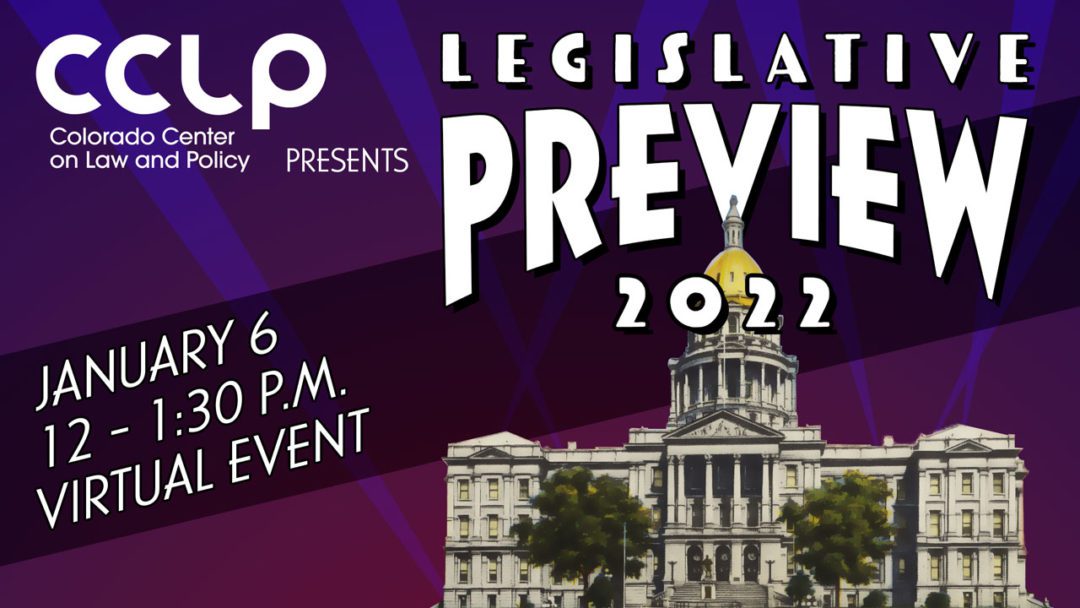
2022 Legislative Preview (recorded event)
On January 6, Colorado Center on Law and Policy hosted our annual Legislative Preview event. In this recording of the event, you can learn more about major upcoming legislation for Colorado’s 74th General Assembly and find out some of CCLP’s top priorities for 2022. Featuring Elisabeth Epps of Colorado Freedom Fund, Melanie Kesner of Interfaith Alliance, as well as many of CCLP’s own legislative experts.
Published on: January 14, 2022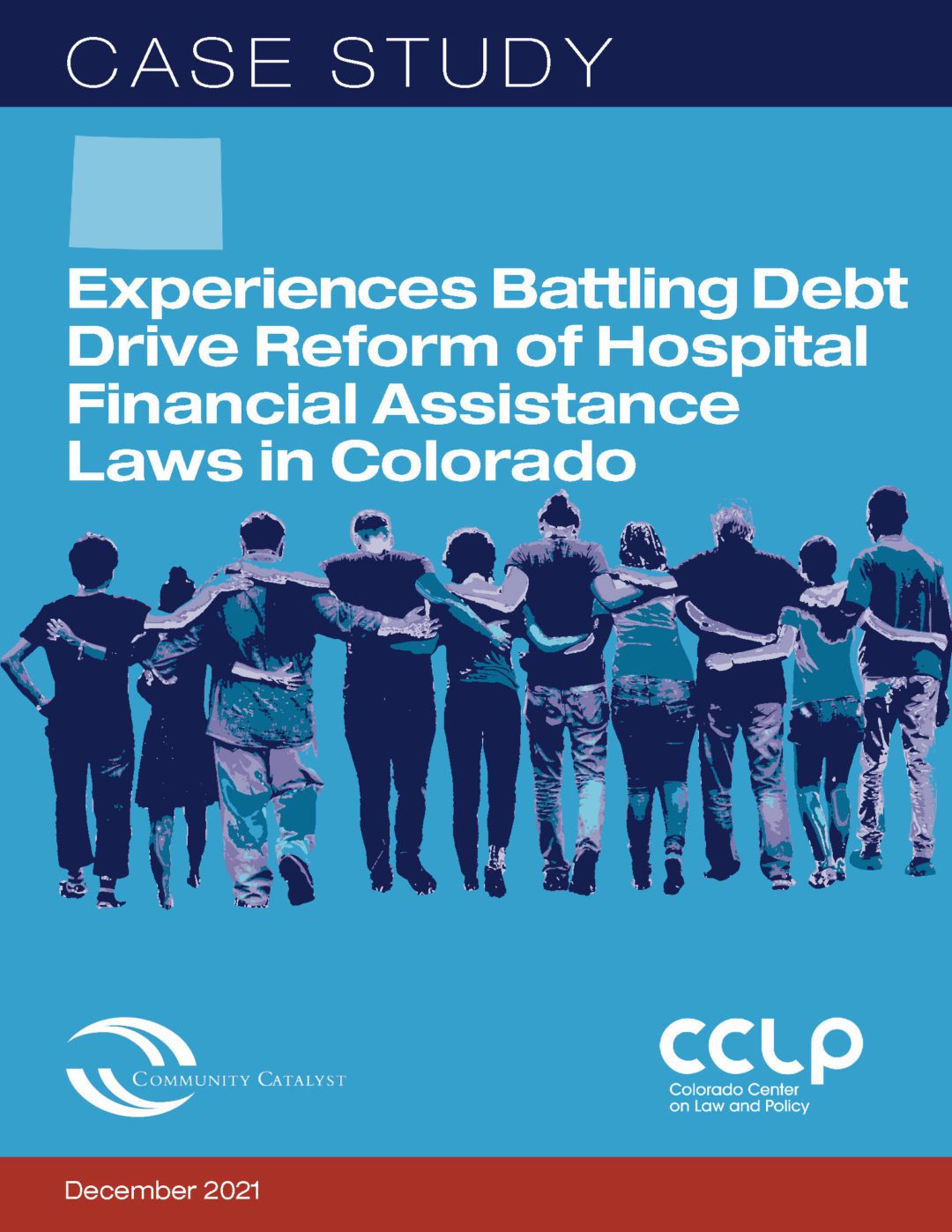
Case Study: Experiences battling debt drive reform of hospital financial assistance laws in Colorado
This brief, co-published with Community Catalyst, tells the story of HB-1198 from conception through passage and the beginning of implementation. It is a story that begins with the experiences of the people in our communities who search in vain for hospital services they can afford, the people who are drowning in hospital bills after a sudden illness or injury, and the people who are suffering long-term financial distress because they were denied access to coverage or financial assistance.
Published on: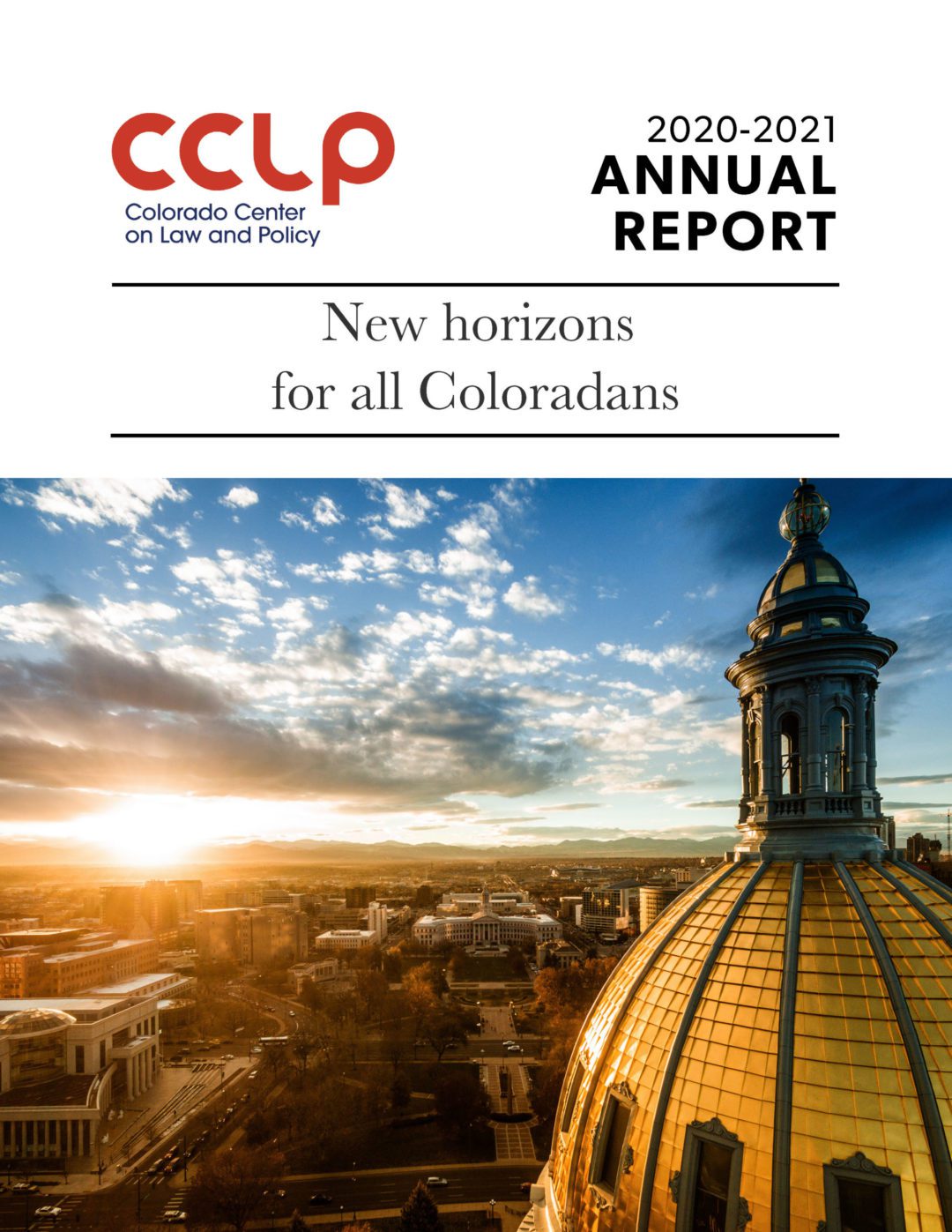
CCLP Annual Report 2020-2021
Colorado Center on Law and Policy releases its annual report each year to share stories of impact from the past year, to affirm our mission and progress toward our vision of a Colorado in which everyone has what they need to succeed, to provide financial statements indicating the fiscal health of the organization, and to acknowledge the many funders and philanthropic organizations who make our work possible.
Published on: December 24, 2021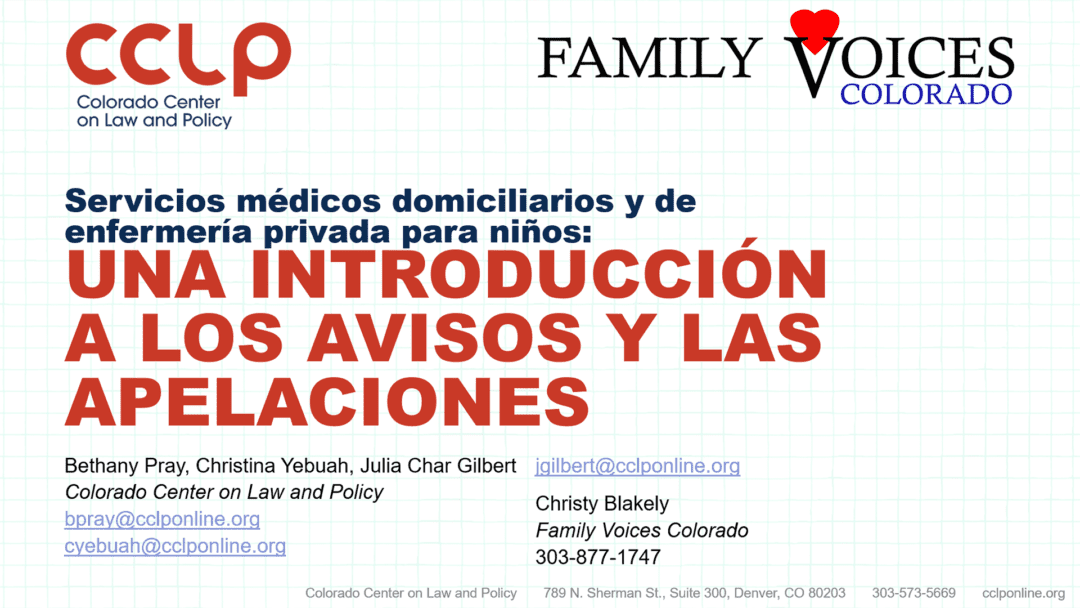
Una introducción a los avisos y las apelaciones
(in English, here) Servicios médicos domiciliarios y de enfermería privada para niños: Una introducción a los avisos y las apelaciones Medicaid es un derecho que le corresponde. Esto quiere decir […]
Published on: December 6, 2021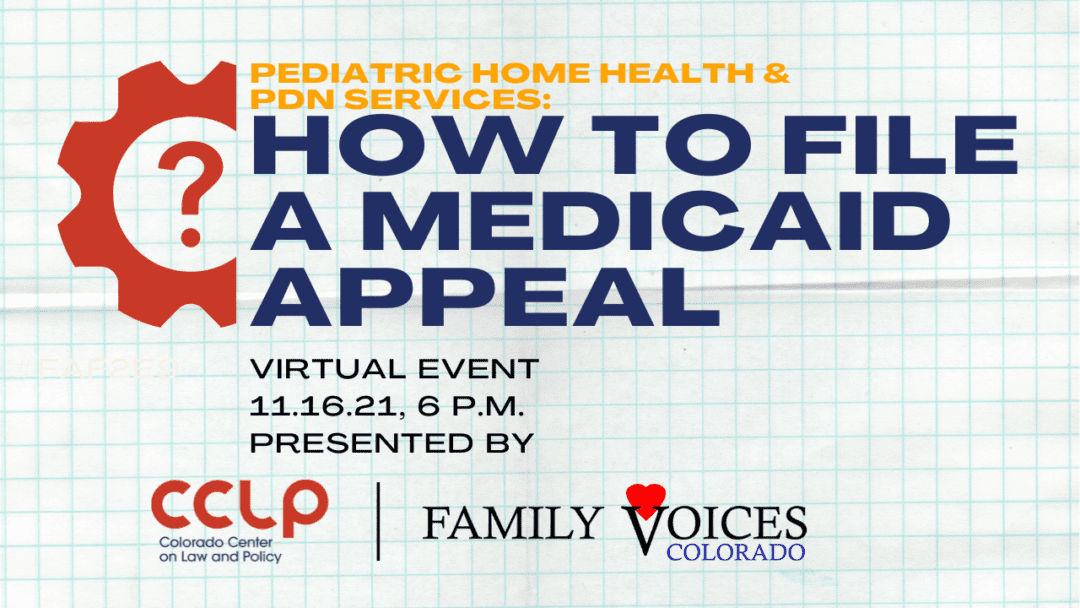
Intro to Medicaid Appeals for Pediatric Home Health PDN Services (recorded webinar)
When Medicaid rejects medically-necessary services for your child, time is of the essence and it’s hard to know where to begin. Co-hosted with Family Voices Colorado on November 16, 2021, this webinar will help you understand:
– what is considered a “Legally Sufficient Notice”
– what the information on your notice means
– what to consider when deciding whether to appeal
– how to file an appeal (and when!)
– and where you can turn for help.
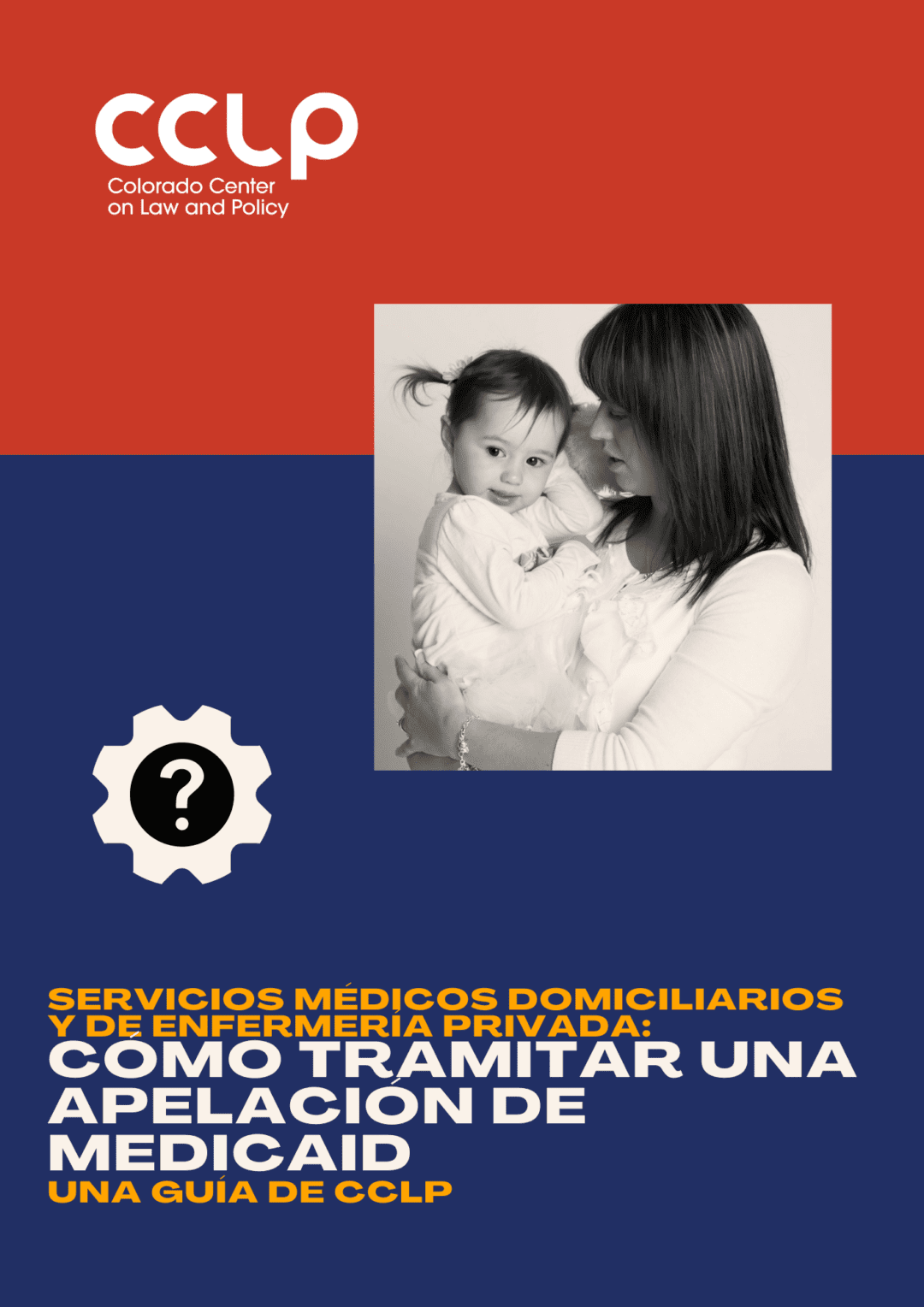
Cómo tramitar una apelación de Medicaid – Servicios médicos domiciliarios y de enfermería privada
En esta guía, aprenderá qué hace que un aviso sea “suficiente legalmente”, cómo solicitar una apelación y qué información se debe proporcionar, dónde y cuándo presentar su apelación, y quién puede estar disponible para ayudarlo con su presentación.
Published on: November 16, 2021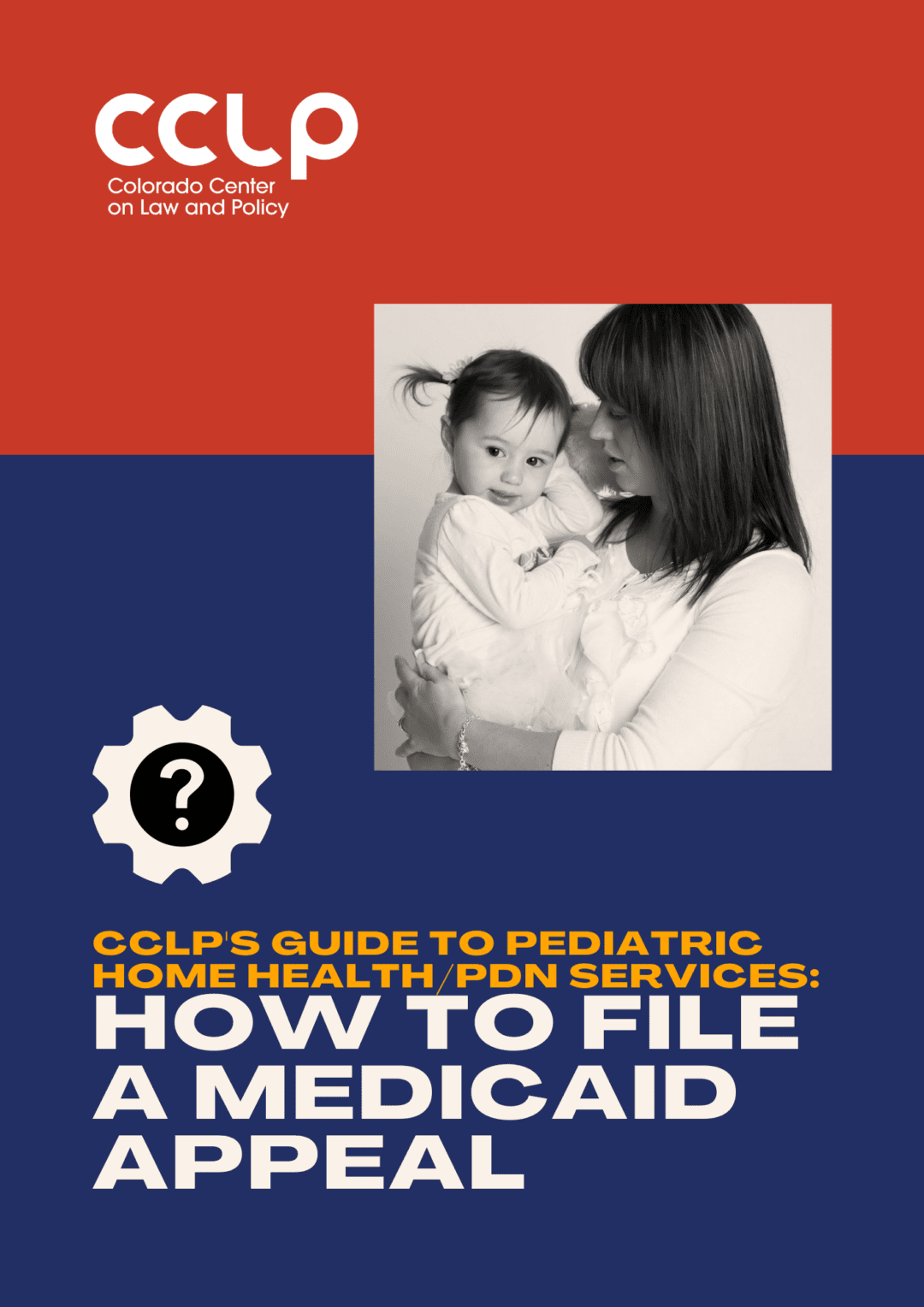
How to file a Medicaid appeal for pediatric home health and PDN services
In this guide you’ll learn what makes a notice “legally sufficient,” how to request an appeal and what information must be provided, where and when to file your appeal, and who may be available to assist you with your filing.
Published on: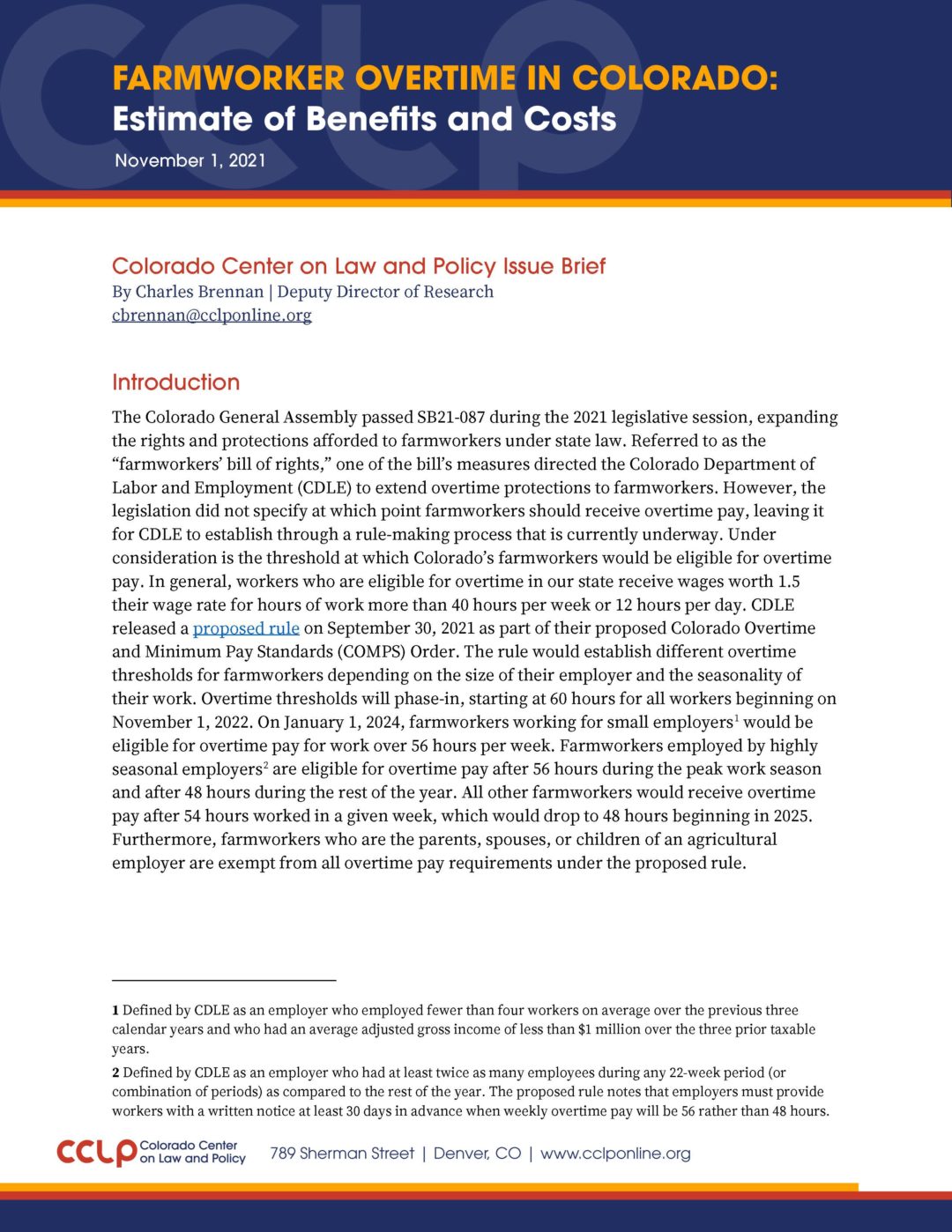
Issue Brief: Farmworker Overtime in Colorado: Estimate of Benefits and Costs
One of the main policy questions surrounding overtime and farmworkers is the potential cost to farmers and the impact on the agricultural industry in Colorado as a whole. In this issue brief, we explore how many workers we estimate would benefit from CDLE’s proposed overtime thresholds and how that might impact farmers in Colorado.
Published on: November 8, 2021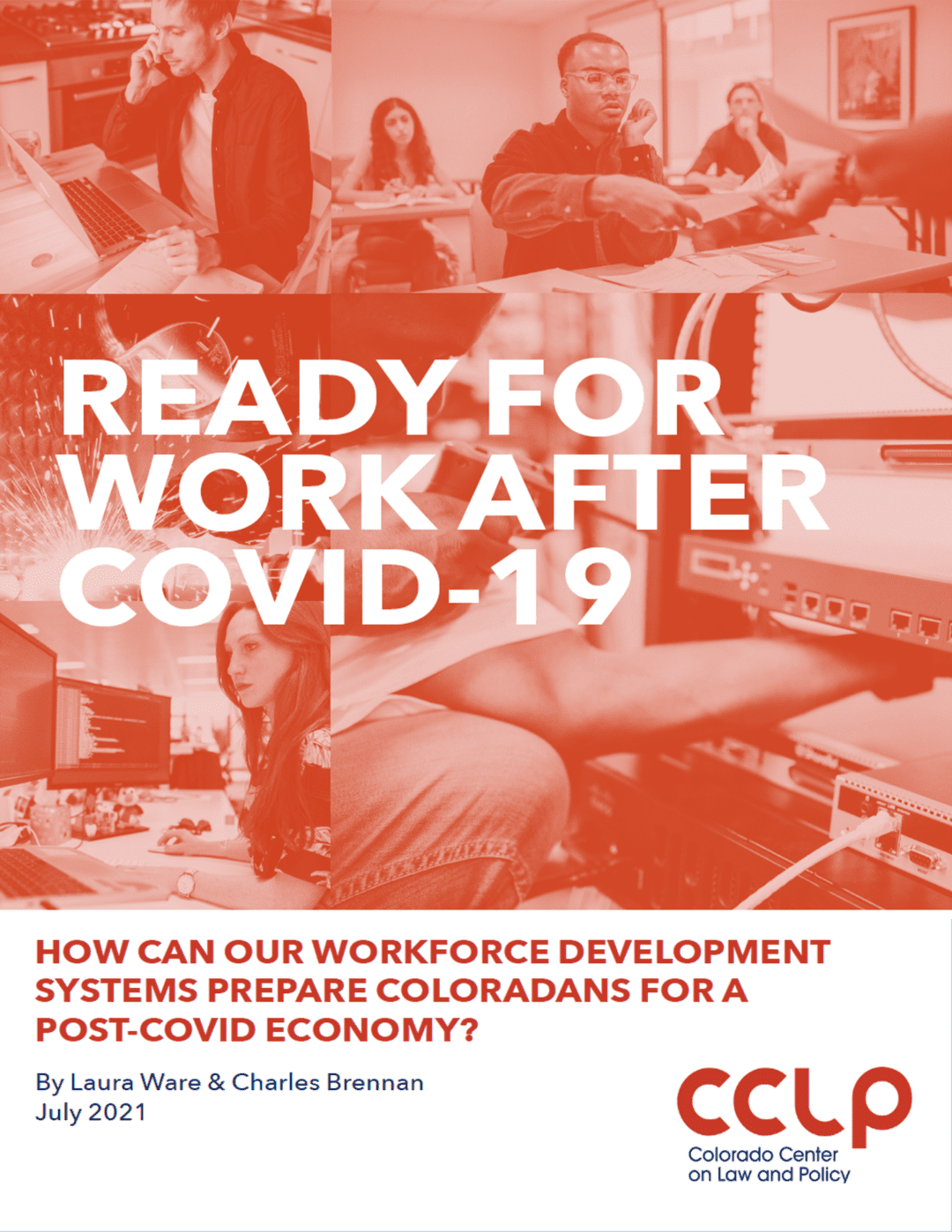
Ready for work after COVID-19
How can our workforce development systems prepare Coloradans for a post-COVID economy? This report by Laura Ware & Charles Brennan was sponsored by a grant from the ECMC Foundation.
Published on: August 26, 2021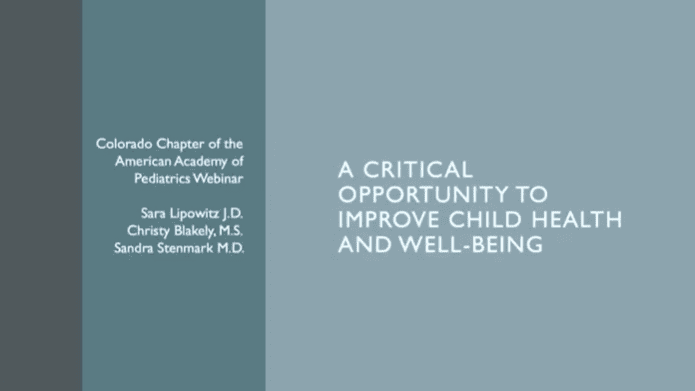
A Critical Opportunity to Mitigate Childhood Poverty
In this webinar from June 23, 2021, CCLP’s Sara Lipowitz joined Dr. Sandy Stenmark of the American Academy of Pediatrics-Colorado Chapter, and Christy Blakely, Executive Director of Family Voices Colorado. Discussion centered on what steps might be taken to mitigate childhood poverty across Colorado.
Published on: July 19, 2021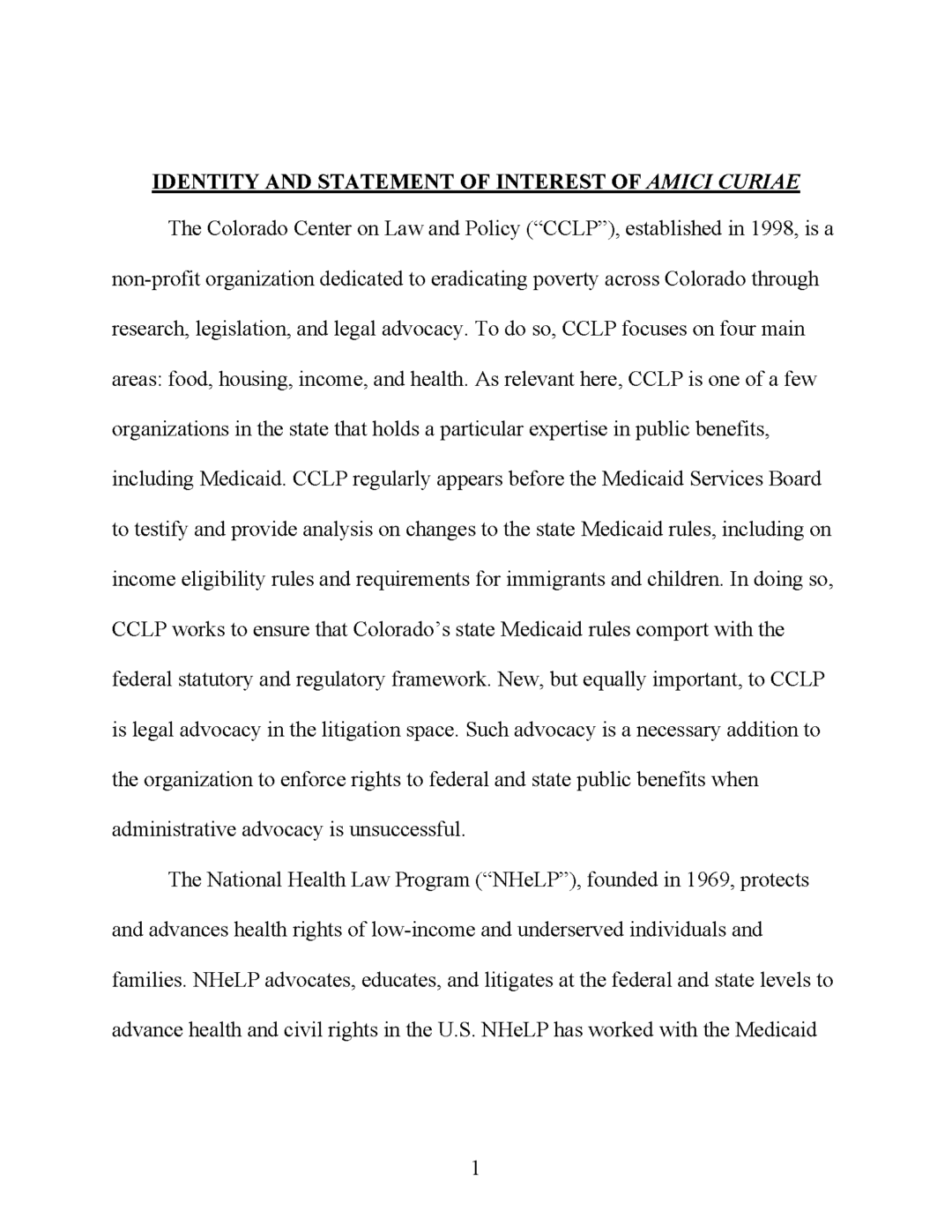
Amicus Brief, May 2021 – CCLP and NHeLP
Published on: May 17, 2021
Lived Experience Project
Published on: April 23, 2021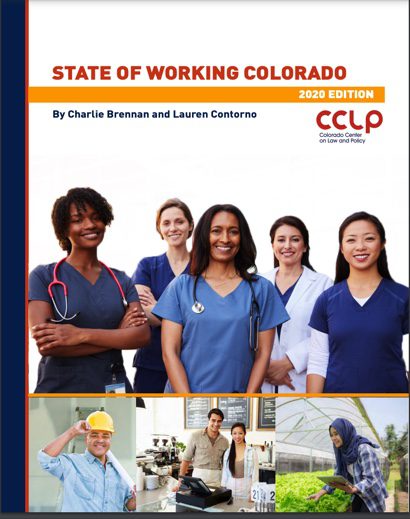
2020 State of Working Colorado
Published by CCLP, the 2020 State of Working Colorado is a compendium of data designed to look beyond traditional state-level economic indicators of prosperity and provide a critical, in-depth perspective of how working families are faring in our state, including statistics and analysis on income and employment.
Published on: December 29, 2020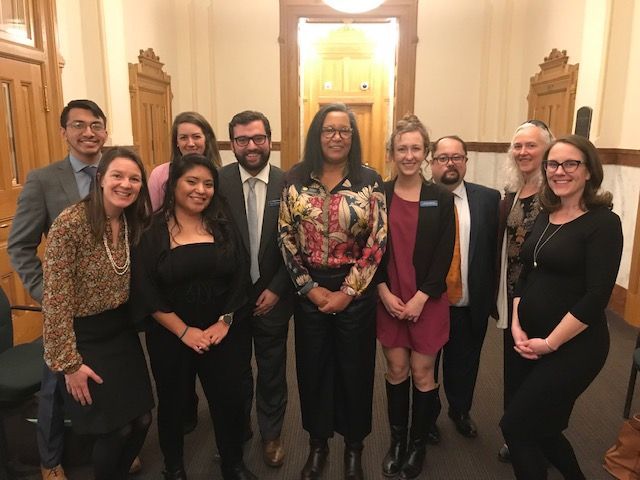
CCLP’s 2019-20 Annual Report
This eight-page document reflects the effectiveness and hard work of our staff, Board of Directors and community partners throughout 2019-20. It includes an overview on our progress in issues pertaining […]
Published on: October 29, 2020Issue Brief: Congress Must Extend Unemployment Insurance Benefits
Roughly 240,000 unemployed Coloradans face a significant reduction in income when the Pandemic Unemployment Compensation (or PUC) elapses in late July. The federally funded benefit — which provides a $600 […]
Published on: July 28, 2020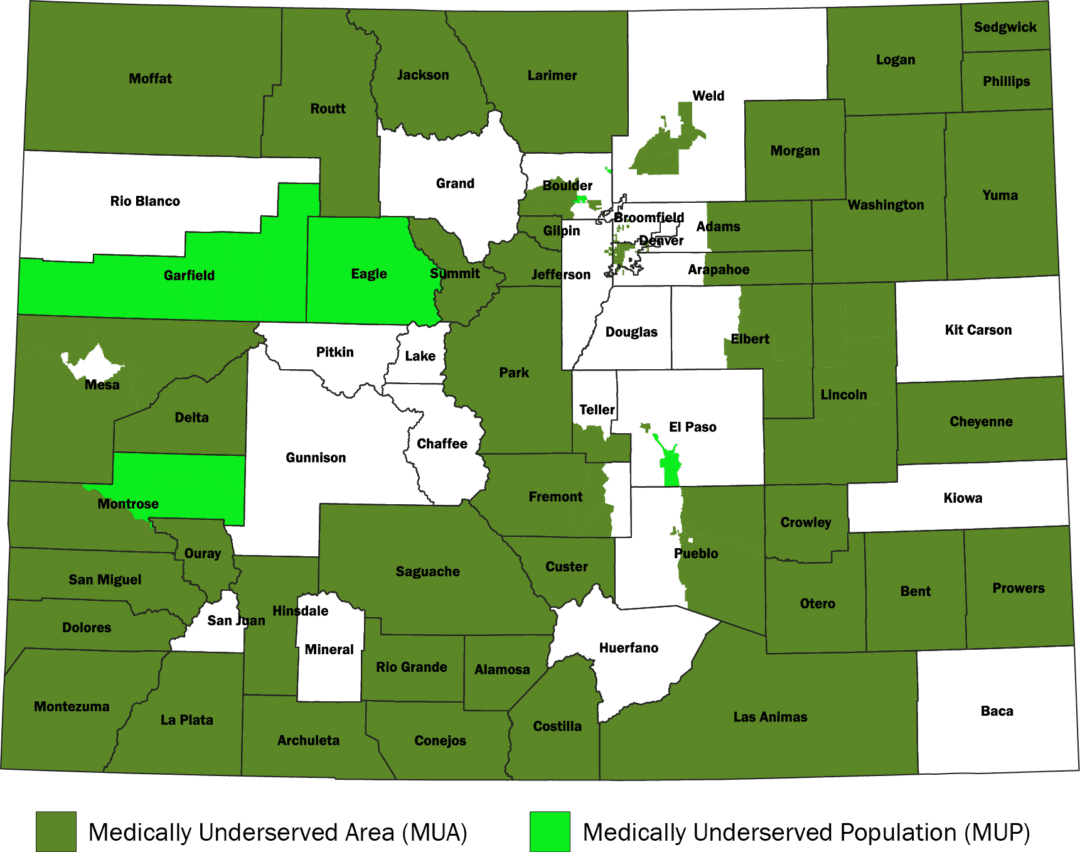
Budget Cuts and Health Access
This 10-page analysis shows how proposed cuts to the Department of Health Care Policy and Financing’s budget will likely have adverse effects on Coloradans’ ability to access health care — […]
Published on: June 5, 2020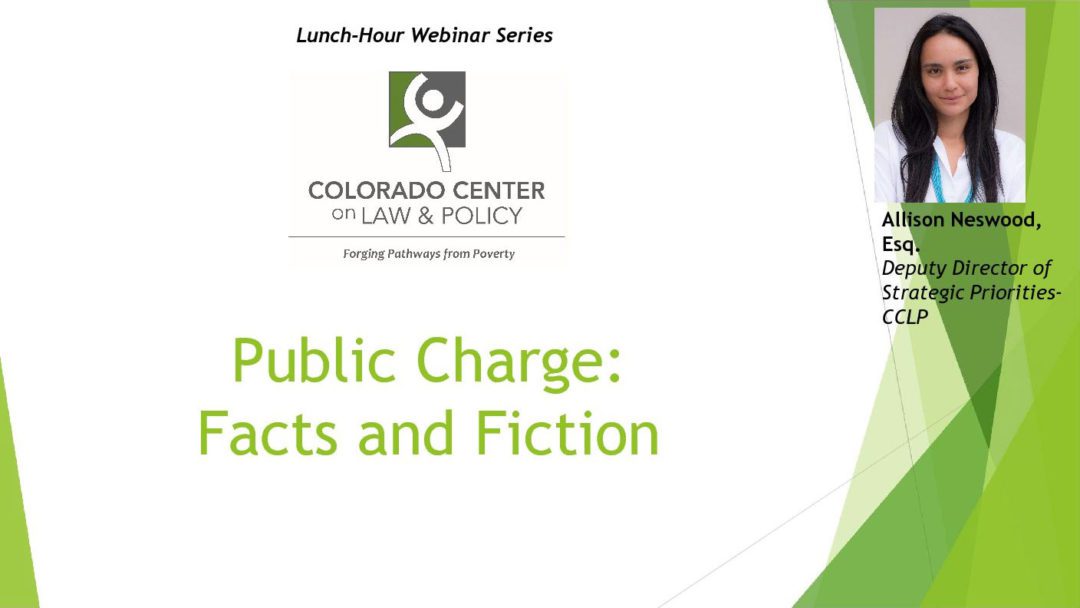
Public Charge: Facts and Fiction
CCLP’s Allison Neswood, Esq., explains the new federal public charge rules and how they affect Colorado’s immigrant families in this 58-minute webinar.
We have applied for one CLE credit for this session.
Published on: May 26, 2020
Issue Brief: What’s Causing Colorado’s Decline in Medicaid and CHIP Enrollment?
Over 1.2 million Coloradans rely on Medicaid or Child Health Plan Plus (CHP+) for comprehensive health services that foster child development, help adults maintain employment, deliver needed mental health and […]
Published on: November 5, 2019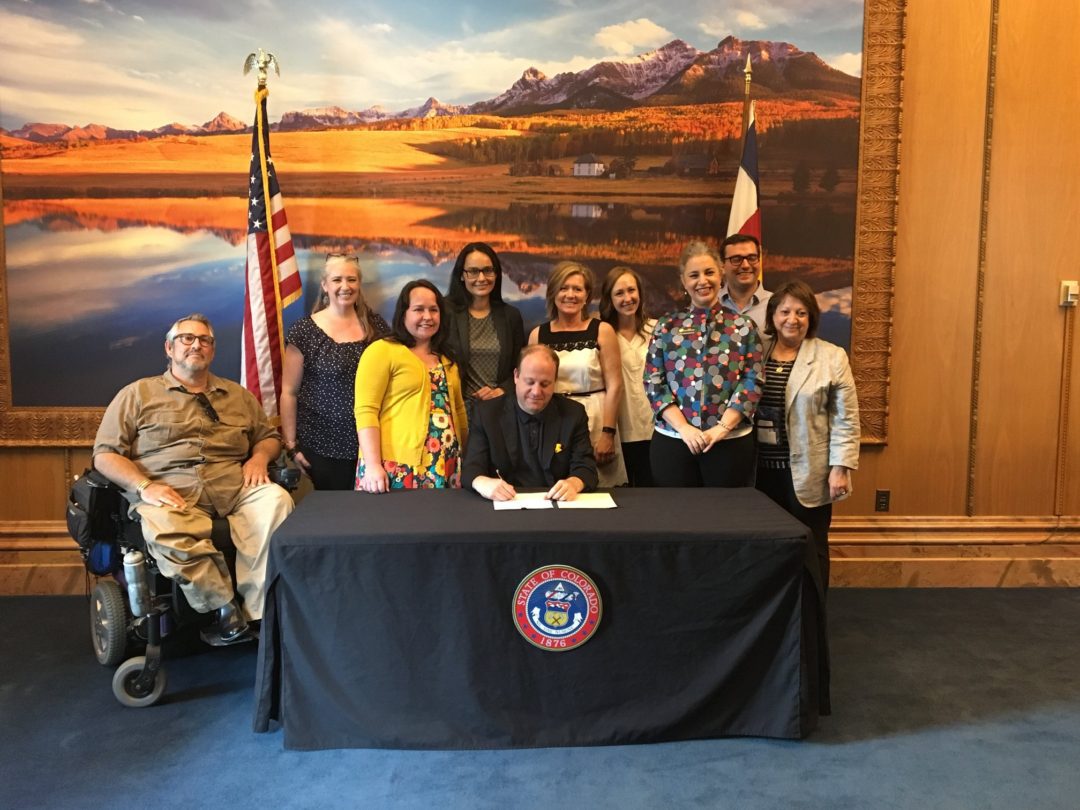
CCLP’s 2018-19 Annual Report
This eight-page document highlights the Colorado Center on Law and Policies achievements for 2018-19. It includes a statement of financial activity and a complete list of funders.
Published on: August 27, 2019
Deductible Affordability for Colorado’s Working-Age Families
Colorado is in the midst of developing an affordable public health insurance option, with the Division of Insurance and the Department of Health Care Policy and Financing directed to come […]
Published on: August 12, 2019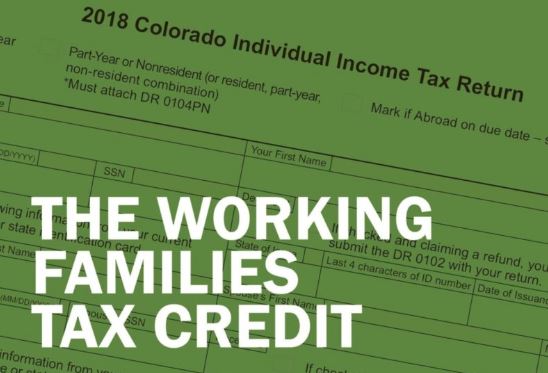
The Working Families Tax Credit Policy Paper
This policy paper, prepared by staff members Charles Brennan, Michelle Webster & Claire Sheridan, delves into the deep issues of economic inequality that permeates our state, but also proposes a […]
Published on: June 19, 2019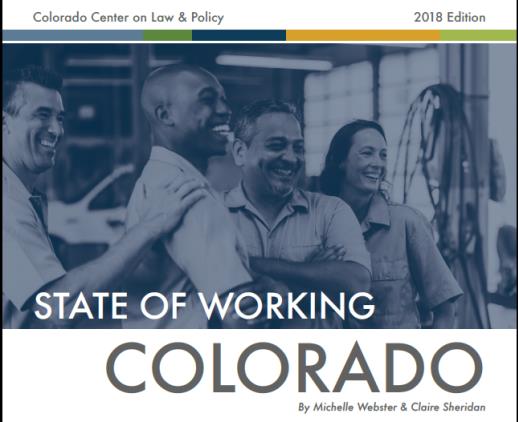
State of Working Colorado 2018
At a cursory glance, Colorado has much to celebrate in terms of low unemployment and poverty levels, but scratching the surface of the data reveals troubling trends fraught with wage […]
Published on: January 14, 2019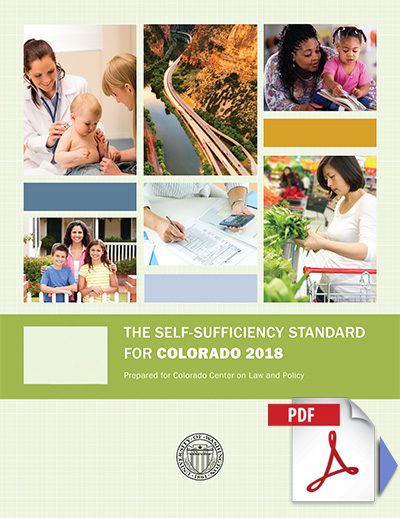
Self-Sufficiency Standard for Colorado 2018
Published on: December 6, 2018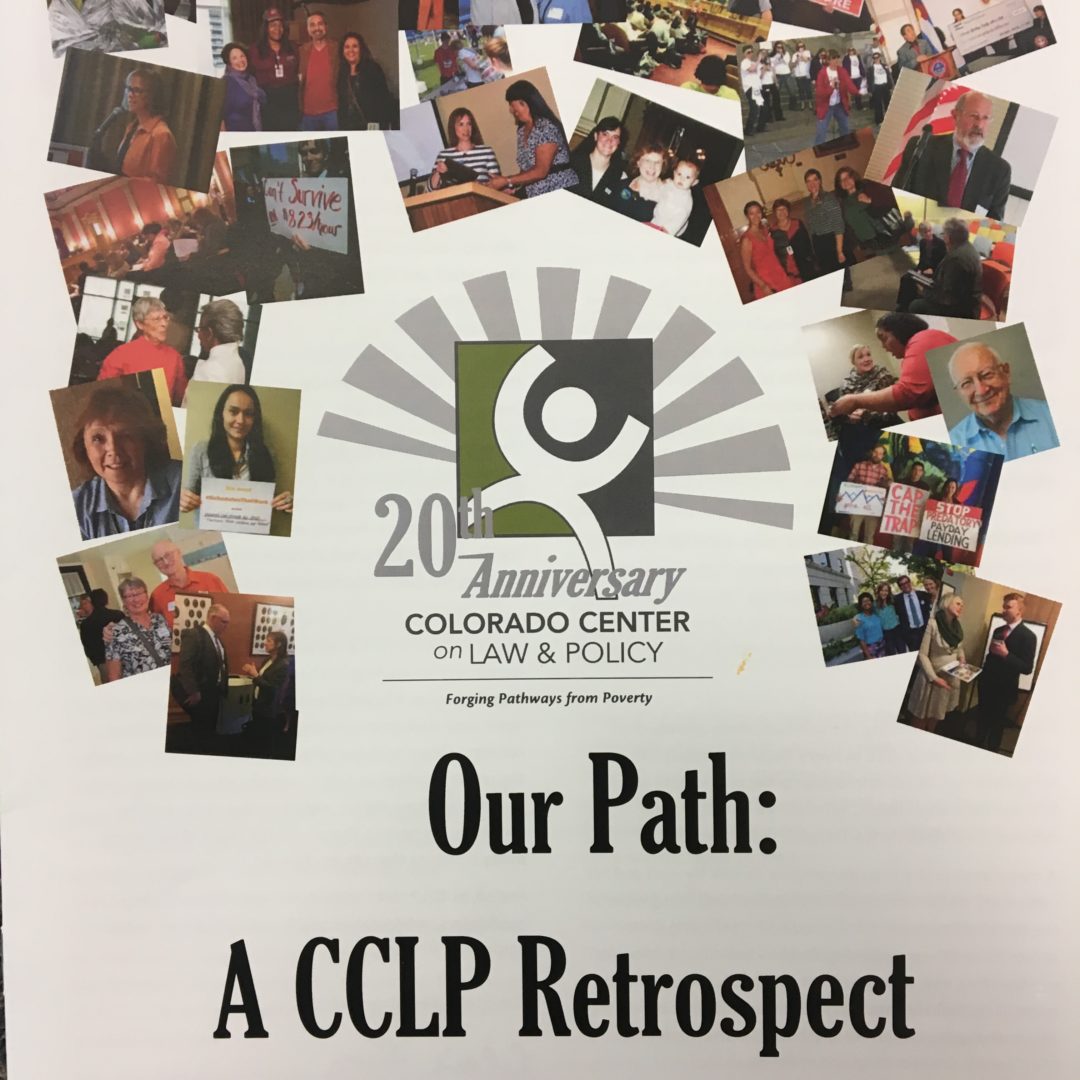
Our Path: A CCLP 20th Anniversary Retrospect
This collection of vignettes celebrates some of CCLP’s proudest accomplishments over the past 20 years, including the minimum wage campaign in 2016 and the EITC (Earned Income Tax Credit). Click […]
Published on: October 3, 2018
CCLP’s 2017-18 Annual Report
This eight-page document highlights the Colorado Center on Law and Policies achievements for 2017-18. It includes a statement of financial activity and a complete list of funders.
Published on: August 30, 2018
State of Working Colorado 2017
The State of Working Colorado is a collection of critical data designed to look beyond broad-based economic indicators to better understand how the economy is working for all Coloradans. Colorado has one […]
Published on: December 14, 2017
Facing Eviction Alone: A Study of Evictions in Denver, 2014-2016
Amid Colorado’s growing affordable-housing crisis, there are roughly 850 evictions filed with courts every week across the state. According to data compiled by the Colorado Judicial Branch and Denver County […]
Published on: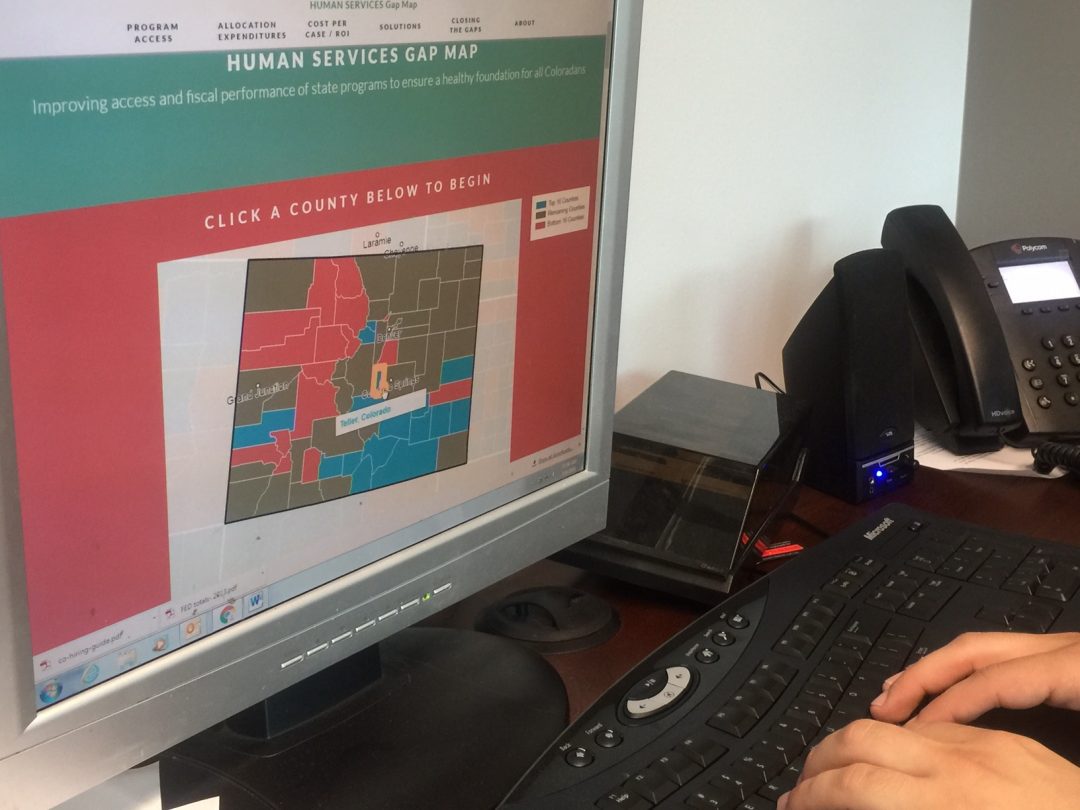
Human Services Gap Map
Human services programs ensure that Colorado communities have the building blocks for a prosperous future. The Human Services Gap Map provides a window into how effectively Colorado is delivering the […]
Published on:
Background Brief: HB06-1023: Verification of Lawful Presence
Advocates across Colorado are interested in improving access to health coverage and care for Colorado’s immigrant populations. One barrier to improving access is state legislation referred to as House Bill […]
Published on: November 3, 2017
A Resource for Health Care Providers and Coverage Enrollment Assisters Serving Immigrants and their Families
As a result of policy changes and anti-immigrant rhetoric coming from the Trump administration, Coloradans who immigrated to the United States and their families are experiencing heightened levels of fear […]
Published on: September 29, 2017
Overlooked and Undercounted: Struggling to Make Ends Meet in Colorado
This eye-opening report from 2007 illustrates how many families were caught in a “policy gap” where they earned too much to qualify for governmental work support programs, but too little […]
Published on: August 23, 2017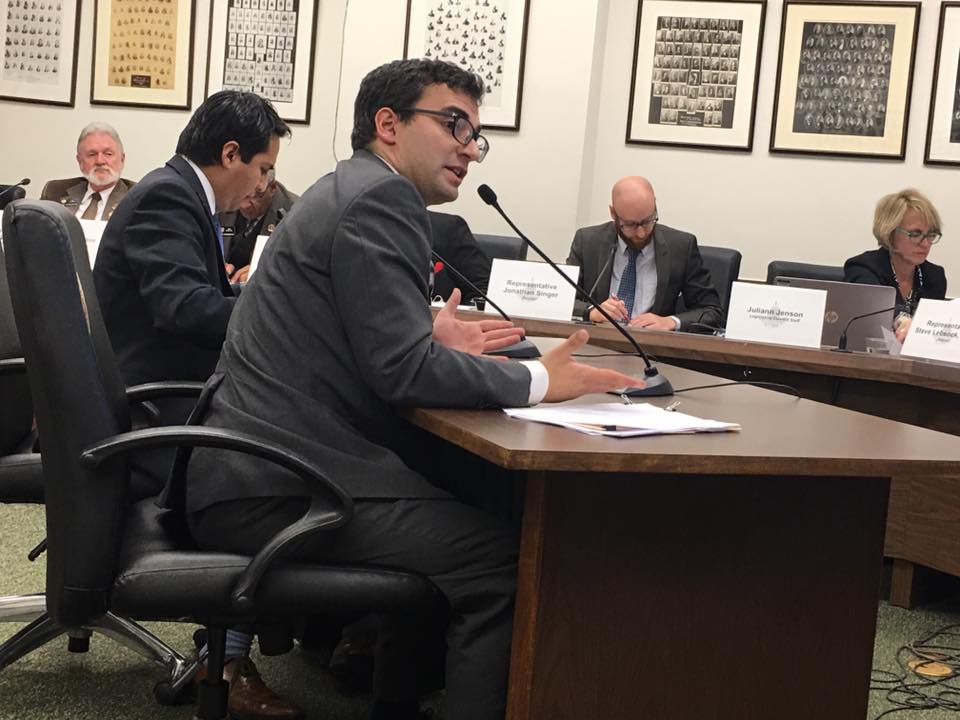
CCLP’s 2016 Annual Report
This eight-page document highlights the Colorado Center on Law and Policies achievements for 2016-17. It includes a statement of financial activity and a complete list of funders.
Published on: August 12, 2017
Health care affordability and Colorado’s low wage workers: a look at Medicaid recipients in Colorado
With the Trump Administration now allowing states to implement work requirements for Medicaid recipients, take a look at this comprehensive breakdown of the work and employment realities for Medicaid recipients […]
Published on: July 6, 2017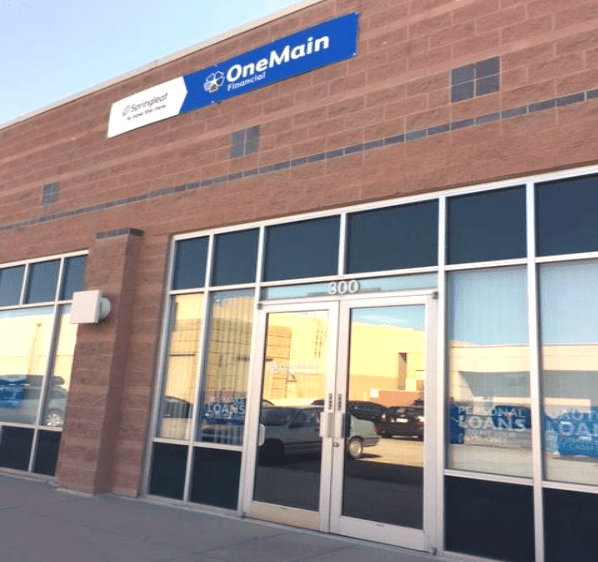
Paying More to Borrow
Subprime Lender Thrives While Colorado Consumers Struggle OneMain is the largest subprime installment lender in the nation operating 1,800 branches in 44 states and by far the biggest fish in […]
Published on: May 15, 2017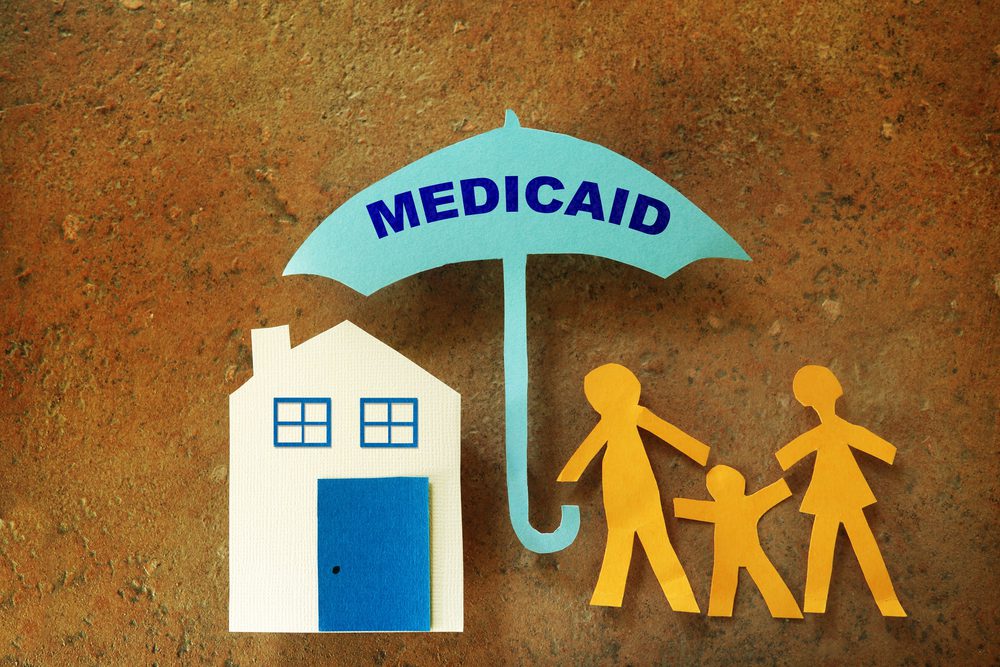
Medicaid Works: A Series of Factsheets
Health First Colorado, Colorado’s Medicaid program, is a public health insurance program that pays for necessary health care services for low-income Coloradans and those living with disabilities. By investing in health […]
Published on: March 14, 2017
2016 State of Working Colorado
Published annually by CCLP, this report presents a collection of critical data designed to look beyond broad-based economic indicators to better understand how the economy is working for all Coloradans […]
Published on: December 19, 2016Statement Regarding Conversion of Rocky Mountain HMO
This is a statement composed by CCLP’s Health Program Director Elisabeth Arenales that focuses on ensuring the Rocky Mountain HMO is fairly valued through the conversion process and that the […]
Published on: October 28, 2016The Flaws in “Impacts of Increasing Colorado’s Minimum Wage”
This brief critiques a study produced by Eric Fruits, an economist hired by the Common Sense Policy Roundtable, a conservative and business-aligned organization in Colorado. Fruits’ study, “Impacts of Increasing […]
Published on: September 12, 2016CCLP’s 2015 Annual Report
This eight-page document highlights the Colorado Center on Law and Policies achievements for 2014-15. It includes a statement of financial activity and a complete list of funders.
Published on: August 31, 2016Medicaid for Justice Involved Adults (Resource Guide)
A large proportion of people cycling out of the criminal justice system don’t have health insurance and suffer from chronic health problems – including mental illness and addiction disorders. Such […]
Published on: March 10, 2016Assets & Opportunity Scorecard: Colorado State Profile
The Assets & Opportunity Scorecard is a comprehensive look at Americans’ financial security. This profile shows how Colorado measures up in five issue areas: Financial Assets & Income, Businesses & […]
Published on: January 22, 2016Legislative and Policy Preview 2016: Health Program
In 2016, our focus will be to ensure that Medicaid expansions are protected and that Medicaid is available to all eligible applicants and participants. CCLP will protect the interests of […]
Published on: January 13, 2016Legislative and Policy Preview 2016: Family Economic Security
This year, CCLP is developing and supporting a number of bills to ensure that Coloradans have a stake in building an economy and human services system that create economic security. […]
Published on:State of Working Colorado 2015-16
Published annually by CCLP, this report presents a collection of critical data designed to look beyond broad-based economic indicators to better understand how the economy is working for all Coloradans […]
Published on: November 20, 2015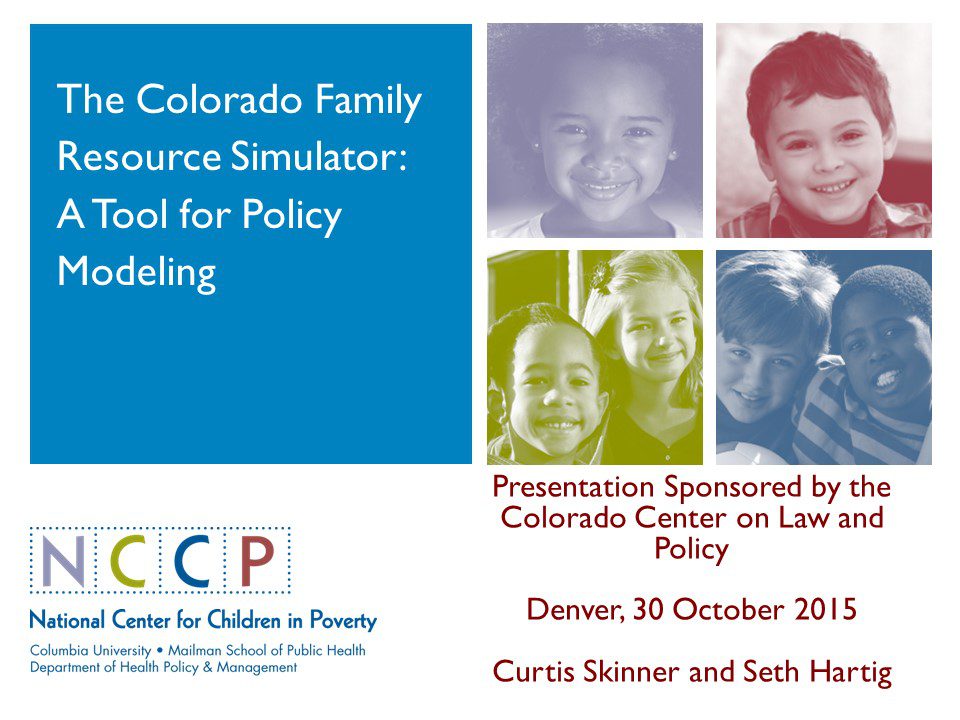
The Colorado Family Resource Simulator: A Demonstration (PowerPoint presentation)
This PowerPoint presentation shows how to use the Family Resource Simulator and Basic Needs Calculator. It was presented by representatives of the National Center for Children in Poverty during an […]
Published on: October 30, 2015Three Policy Reforms to Help Low-Income Children in Colorado
The National Center for Children in Poverty collaborated with CCLP on this briefing. NCCP used findings aggregated from its Family Resource Simulator and Basic Needs Budget Calculator to model how […]
Published on: October 29, 2015CCLP’s 2014 Annual Report
This eight-page document highlights the Colorado Center on Law and Policies achievements for 2014-15. It includes a statement of financial activity, a complete list of funders and a preview of what’s ahead […]
Published on: August 31, 2015The Parity Act: Putting it to Use (CCLP PowerPoint Presentation)
Recent legislation, including the Mental Health Parity and Addiction Act of 2008 and the Affordable Care Act of 2010 expanded the perimeters for behavioral health coverage. This PowerPoint presentation, prepared […]
Published on: August 12, 2015Immigrants and Health Program Access in Colorado
This brief offers a recap of the availability of points of access to healthcare and health insurance for immigrants in Colorado and explores steps other states are taking to enhance […]
Published on: July 24, 2015Outside the Box: An Approach to Promoting and Increasing Opportunities for People with Criminal Records
To spark discussion about policies that will help people with criminal records in Colorado gain access to the job market, this CCLP brief analyzes the barriers that prevent people with criminal […]
Published on: July 10, 2015Self-Sufficiency Standard for Colorado 2015
The Colorado Center on Law and Policy is publishing The Self-Sufficiency Standard for Colorado 2015 in an effort to ensure the best data and analyses are available to enable Colorado’s […]
Published on: June 10, 2015Analysis: Challenges and Opportunities for the ACA
Five years after President Obama signed the Patient Protection and Affordable Care Act (ACA) into law and a year and a half after most of its major provisions were implemented, […]
Published on:Local Minimum Wage Overview
According to the National Conference of State Legislatures, 15 states have enacted laws prohibiting local units of government from adopting minimum wage laws for their jurisdictions. Colorado was one of […]
Published on: April 23, 2015Analysis: King v. Burwell Arguments
On Wednesday, March 4, the Supreme Court heard oral arguments in King v. Burwell, the latest legal challenge involving the Patient Protection and Affordable Care Act (ACA). Petitioners in the […]
Published on: March 6, 2015Surviving to Thriving: Pathways to Opportunity for Low-Income Women
Women comprise nearly half of the labor force and are essential to the economic engine of the state. Yet, women continue to face disparities in income and opportunity and are […]
Published on: January 27, 2015Making Health Coverage Meaningful: Mitigating the Effects of Churn
Churn is the word commonly used to describe the movement of people between public and private health insurance and between insured and uninsured status due to fluctuations in income […]
Published on: November 10, 2014State of Working Colorado 2014
The United States economy fell into a deep and severe recession in December 2007. The Great Recession officially ended in June 2009 but its impact continues to be felt in […]
Published on: September 29, 2014Manual de Colorado Trabaja
El Programa de Colorado Trabaja es un programa enfocado en asistencia pública que empezó el 1 ro. de Julio de 1997. Colorado Trabaja puede brindarle a Ud. y a […]
Published on: September 3, 2014Sneak Preview: State of Working Colorado 2014
Chapter 3 – Income Income earned from work, returns on investments and government benefits is at the heart of a family’s economic security. Income determines the standard of living […]
Published on: August 28, 2014Annual Report 2013
Dear Friend of CCLP, The past year marked a historic year for poverty reduction in Colorado and the Colorado Center on Law and Policy. On the health care front, Medicaid […]
Published on: August 11, 2014Health Law & Policy Updates
Click to access updates 2014 Health Law & Policy Updates 2013 Health Law & Policy Updates 2012 Health Law & Policy Updates We are still working hard to […]
Published on: July 17, 2014Letter: Connect for Health Colorado Proposed FY2015 Budget
Board of Directors Connect for Health Colorado 3773 Cherry Creek N Dr. Denver, CO 80209 RE: Connect for Health Colorado Proposed FY2015 Budget On behalf of the Colorado Consumer Health […]
Published on: June 10, 2014CCLP’s 2014 primary legislative priorities passed: Landmark progress on reducing poverty, advancing opportunity
The Colorado Center on Law and Policy pursued an ambitious agenda during the 2014 General Assembly session to secure pathways from poverty for struggling families in Colorado. CCLP’s legislative priorities […]
Published on: May 12, 2014Child care funding in Colorado has fallen behind by $54 million
One of the greatest barriers to employment for low-income families is the cost of child care. The Colorado Child Care Assistance Program (CCCAP) provides vital support for thousands of families […]
Published on: March 26, 2014Support HB 14-1317: Colorado Child Care Assistance Program changes
Support HB 14-1317: Increase access to affordable child care for working families and decrease red tape for working parents & small business child care providers Affordable child care should support—not […]
Published on: March 18, 2014CEP 2: Marketplace and Medicaid eligibility
The Consumer Engagement Project is a coalition of four Colorado organizations that advocate for affordable, high quality health insurance for all Coloradans. The organizations include the Colorado Consumer Health Initiative, […]
Published on: March 10, 2014Income inequality surges in Colorado, according to new report
The gap between the wealthiest Coloradans and everyone else turned into a chasm following the Great Recession, according to a report released today. In that time, Colorado’s top 1 percent […]
Published on: February 19, 2014Wage Protection Act
SB-005: SUPPORT The Wage Protection Act Sponsors: Sen. Ulibarri, Rep. Singer, Rep. Duran Proposal Highlights: • The Wage Protection Act ensures low-wage workers in Colorado receive the respect […]
Published on: January 22, 2014Expanding affordable, quality child care – EOPRTF
Prepared for the Economic Opportunity Poverty Reduction Task Force. Expanding the Colorado Child Care Assistance Program will provide needed support for more low-income families and strengthen the economy as more […]
Published on: January 15, 2014Fixing the Child Care Tax Credit – EOPRTF
Prepared for the Economic Opportunity Poverty Reduction Task Force. Fixing the child care tax credit would allow the poorest Colorado families to benefit from a tax policy that helps offset […]
Published on:Strengthening adult basic education – EOPRTF
Prepared for the Economic Opportunity Poverty Reduction Task Force. Adult education and literacy programs provide pathways out of poverty. More than 300,000 working-age Coloradoans lack a high school diploma or GED. […]
Published on:Restoring Aid to Needy Disabled – EOPRTF
Prepared for the Economic Opportunity Poverty Reduction Task Force. The assistance provided by the Aid to the Needy Disabled (AND) program for Colorado’s neediest population has declined in recent years. […]
Published on:Improving Access to IDs – EOPRTF
Prepared for the Economic Opportunity and Poverty Reduction Task Force. Colorado residents who lack a valid state identification card can find themselves marginalized and excluded from essential services and assistance […]
Published on:CEP 1: Colorado’s assistance network provides essential services
The Consumer Engagement Project is a coalition of four Colorado organizations that advocate for affordable, high quality health insurance for all Coloradans. The organizations include the Colorado Consumer Health Initiative, […]
Published on: December 30, 2013After tax credits, many insurance plans in Garfield, Summit Counties are less expensive than those in Denver
Concerns have been raised about the price of health coverage offered through the Connect for Health Colorado insurance marketplace in some mountain and western slope counties. The press and residents […]
Published on: December 4, 2013The Affordable Care Act and Colorado: Past, Present, and Future
Many Coloradans have questions about how health insurance will change under the health reform law. CCLP’s new pamphlet outlines the benefits already available, details what new changes are coming, and […]
Published on: October 28, 2013Amendment 66 will improve Colorado’s income tax
Amendment 66 will restore Colorado’s ability to raise enough revenue to meet our schools’ growing needs and make the income tax more like those of our neighbor states, all without […]
Published on: October 2, 2013Increasing income tax won’t harm Colorado economy
Amendment 66 issue brief two in series of three. Changes to state taxes have little influence on business location decisions, the creation of small businesses or other economic activity, according to Increasing […]
Published on: September 26, 2013The Patient Protection and Affordable Care Act in Colorado Presentation
View CCLP’s presentation on the Affordable Care Act’s story in Colorado delivered at the National Alliance on Mental Illness (NAMI) annual meeting on September 21st, 2013. The presentation covers the […]
Published on: September 24, 2013Investing in education will boost Colorado economy
Investing in education will not only help Colorado students do better in school, it will also give the state a powerful tool to boost its economy. Where education thrives, higher […]
Published on: September 18, 2013Proposal to restore benefits for Aid to the Needy Disabled program
State funding for the Aid to the Needy Disabled (AND) program has fallen behind in recent years resulting in lower monthly benefits. Because total funding has been stable throughout the […]
Published on:Remove barriers to identification to improve access to benefits
Colorado law requires that people who apply for public benefits must have a valid government identification. For many Coloradans this is more difficult than it seems. They are unable to […]
Published on:Poverty rate remains unchanged, still above pre-recession level
Today, the Census Bureau released results of the 2012 Current Population Survey. This survey provides data on poverty, income and health insurance coverage primarily at the national level. Look for […]
Published on: September 17, 2013The Affordable Care Act enhances economic security and reduces poverty for low-income Coloradans
The Patient Protection and Affordable Care Act (ACA) reduces poverty and promotes economic security for thousands of Coloradans by providing better access to more affordable health care. While many of […]
Published on: September 10, 2013Our Dollars, Our Health
Our Dollars, Our Health Colorado hospitals charge several times more than the estimated cost of providing quality care, according to analysis of recently released national data on hospital charges and […]
Published on: August 15, 2013Colorado Works Handbook
The Colorado Works Program is a work-focused public assistance program that started on July 1,1997. Colorado Works can provide individuals and families with temporary assistance, support services including work supports, […]
Published on: August 9, 2013Connect for Health Colorado appeals process fact sheet
Developing a Connect for Health Colorado (C4HCO) appeals process through the Colorado Office of Administrative Courts (OAC) would streamline the appeals process, reduce administrative burdens and protect consumers from undue […]
Published on: August 8, 2013Annual Report 2012
CCLP: Colorado’s Powerhouse for the Poor For fifteen years, the Colorado Center on Law and Policy has worked hard, with notable success, to enhance justice and economic security for low-income […]
Published on: August 1, 2013Charges vary dramatically among Colorado hospitals, even within the same city
Colorado hospitals vary dramatically in what they charge and officials at the Centers for Medicare and Medicaid Services (CMS) have said there is simply no business reason for such a […]
Published on: June 13, 2013State of Working Colorado 2013
Each year, in partnership with the Economic Policy Institute, we produce the State of Working Colorado as a means of taking inventory of Colorado’s economy and how the state of […]
Published on: May 22, 2013SNAP supports thousands of families and jobs in Colorado
The Federal Supplemental Nutrition Assistance Program (formerly known as the food stamp program) provides vital assistance to thousands of families throughout Colorado. SNAP is also a form of indirect economic […]
Published on: May 21, 20132013 General Assembly recap
The Colorado General Assembly took significant steps toward providing economic and health security for low-income Coloradans during the General Assembly session completed yesterday. Two issues dominated the agenda for low-income […]
Published on: May 9, 2013Identifying the causes of rising health care costs: Lessons for Colorado from other states
A new report from the Colorado Center on Law and Policy examines potential policies for containing health care costs in Colorado. Rising health care costs are presenting serious challenges for […]
Published on: April 10, 20132013 legislative agenda and fact sheets
CCLP is monitoring, supporting or opposing many bills this year at the Capitol. You may follow this link to Colorado Capitol Watch, where you will find a list of the bills we […]
Published on: April 1, 2013Income boosts provided by EITC can help improve health outcomes for low-income families
Low-income families typically have limited access to health care, healthy food and exercise options. As a result, low-income adults and children experience disproportionate incidences of poor health. This paper examines […]
Published on: March 13, 2013Testimony on SB13-200, Medicaid expansion
Testimony to the Senate Health and Human Services Committee from CCLP Health Program Director Elisabeth Arenales.
Published on: March 4, 2013Immigrants strengthen Colorado’s economy
The foreign-born population is a growing presence in Colorado, representing 1 in 10 of the state’s residents. Immigrants are a rising proportion of the labor force and contribute significantly to […]
Published on: February 14, 2013Cuts to Older Americans Act would hurt Colorado's seniors
Potential cuts in federal funding for programs such as Meals on Wheels and other programs that help frail seniors would not only reduce the quality of life for older Coloradans, […]
Published on: February 13, 2013HB13-1144 Taxes on cigarettes reduce smoking, improve public health and generate revenue for the state
A review of recent studies shows that cigarette consumption is closely tied to the price of cigarettes. In fact, one report found that even modest increases in the price of […]
Published on: January 30, 2013Expanding Medicaid makes Colorado's workforce and economy healthier
Expanding Medicaid fills one of the gaps in health care coverage that the Affordable Care Act is designed to eliminate. The various pieces of health reform – tax credits, the […]
Published on: December 19, 2012Tax cuts have reduced Colorado General Fund revenue over time
By any measure, Colorado’s General Fund revenue has failed to keep pace with the state’s growth in the past three decades. While Colorado’s population and economic output have grown steadily […]
Published on:Workforce development programs threatened by sequestration
If the fiscal cliff discussions fail, the federal budget cuts that will occur as a result of the process known as sequestration could cause a reduction in workforce development services […]
Published on: December 14, 2012Rulemaking primer
Rulemaking—the formal process of passing, or promulgating regulations—is one of the most important and least understood functions of government. Lawmaking begins with the legislature passing broad policies in the form […]
Published on: November 24, 2012Analysis of 2012 Federal Tax Reform, Part Three: The need for balanced budget reform
Now that the election has been decided, Congress will convene to discuss federal budget and tax reform. With the expiration of the Bush tax cuts set for January 1, 2013 […]
Published on: November 13, 2012Governor’s 2013-14 budget proposal begins restoring cuts, but some major questions remain
Governor John Hickenlooper’s proposal for the state budget would begin restoring some of the cuts from recent years that have harmed state services. But his spending plan for the year […]
Published on: November 2, 2012New poverty estimates paint grim picture for many communities throughout Colorado
New data released from the U.S. Census Bureau’s annual American Community Survey show a continued struggle for many Colorado citizens as recovery stagnates. • The overall poverty rate in Colorado […]
Published on: September 27, 2012Sequestration and the Colorado budget
As a result Congress’s failure to agree on deficit reduction, automatic sequestration cuts will strip billions of dollars from state budgets, costing jobs and hurting working families. Colorado stands to […]
Published on: September 2, 2012Amendment 64 would produce $60 million in new revenue and savings for Colorado
Read our analysis of Amendment 64, that says that regulating marijuana like alcohol would generate $60 million a year in revenue and savings for the state of Colorado. In addition the revenue […]
Published on: August 16, 2012Analysis of 2012 Federal Tax Reform, Part One: Proposed Federal Tax Plans Vary on Tax Equity
Tax rates, spending cuts and the federal deficit are again the center of debate on Capitol Hill. With the Bush-era tax cuts set to expire at the end of 2012, […]
Published on: July 9, 2012State budget revenue holds steady but faces threats from fragile economy and federal cuts
The outlook for Colorado’s tax revenue has improved slightly in the past few months making budgets for schools, health care and other vital services secure for now. The fragile economy […]
Published on: June 21, 2012Immigrant Small Business Owners A Significant and Growing Part of the Economy
Today, the New York Fiscal Policy Institute’s Immigration Research Initiative released a study examining the number and characteristics of immigrant small business owners across the country. The report, Immigrant Small Business Owners: A […]
Published on: June 14, 2012Accountable Care Collaborative could save money and improve quality, but it risks new barriers to care
The state’s Accountable Care Collaborative (ACC) Program could help contain costs and improve the services Medicaid recipients receive. Without careful implementation, though, the ACC Program risks creating new barriers to […]
Published on:State of Working Colorado 2012
While the past decade has proved the resiliency of Colorado and the people who call the state home, it has also highlighted the need for forward-looking policies that help maintain […]
Published on: May 15, 2012Long Bill prevents more cuts to schools; magnifies shortfall to the rest of Colorado’s 2012-13 budget
The Colorado House of Representatives begins debate this week on the 2012-13 state budget already approved by the General Assembly’s budget-writing panel, the Joint Budget Committee. Known as the Long […]
Published on: April 19, 2012Take Action Advocacy Day: A look at the state of working women in Colorado
The Colorado Center on Law & Policy today will co-host the Take Action Advocacy Day for women at the State Capitol in Denver. Along with the Women and Family Action […]
Published on: April 5, 2012Colorado Budget Primer
The Colorado Budget Primer is a detailed explanation of how the state’s budget is formed, the major players in the process, essential terms for understanding the state budget and ballot […]
Published on: January 30, 2012Annual Report 2011
Dear Friend of the Colorado Center on Law and Policy, The Colorado Center on Law and Policy makes waves. Our mission is to advance the health, eco-nomic security and well-being […]
Published on: January 1, 2012The Elder Economic Security Standard Index for Colorado
The Colorado Center on Law and Policy recognizes that many Colorado elders age 65 and over struggle to make ends meet. Living costs are high, especially for housing and health […]
Published on: May 17, 2011Self-Sufficiency Standard for Colorado 2011
CCLP serves as the local partner of the Colorado Self-Sufficiency Standard, which provides an accurate measure of the cost of living in each county in Colorado. The 2011 Self-Sufficiency Standard […]
Published on: May 1, 2011Annual Report 2010
Highlights from a year of advancing justice and economic security for all Coloradans • The Colorado Fiscal Policy Institute played a major role in defeating Amendment 60, Amendment 61 and […]
Published on: January 1, 2011State of Working Colorado 2010
The past 10 years have been ones of turmoil and contradiction for Colorado and its workers. The decade that began and ended with recession saw economic growth and above-average earnings […]
Published on: May 15, 2010The economic impact of the Earned Income Tax Credit in Colorado
Since its inception more than 35 years ago, the Earned Income Tax Credit (EITC) has proven to be an essential piece of federal policy to promote work and strengthen families. […]
Published on: April 14, 2010Annual Report 2008-2009
Joint letter from executive director and board president Change has been a dominant theme at CCLP and COFPI in recent years: the economic landscape, the budget picture, the political […]
Published on: January 1, 2010Presentation on The Cost of Care: Can Coloradans afford health care?
As the debate around health care reform evolves at the state and federal levels, there are three critical areas that policymakers must consider: adequacy, accessibility, and affordability. As families grapple with increasingly difficult […]
Published on: August 31, 2009State of Working Colorado 2009
As Colorado heads into 2010 it seems that the worst of the recession is behind us. Very recently job losses have slowed and unemployment has eased. However, the effects of […]
Published on: May 15, 2009The Cost of Care
As the debate around health care reform evolves at the state and federal levels, there are three critical areas that policymakers must consider: adequacy, accessibility, and affordability. Affordability is often mentioned […]
Published on: April 1, 2009State of Working Colorado 2008
As Colorado heads into a new year, there are troubling economic signs everywhere. Unemployment and poverty is up. Wages are stagnant. Fewer people are able to get health insurance. And […]
Published on: May 15, 2008Annual Report 2007
As CCLP moved through 2007, we were fortunate to grow as an agency, to work toward solving some of Colorado’s most pressing challenges, and to welcome several new members to […]
Published on: January 1, 2008State of Working Colorado 2007
Colorado has a mixed story to tell about its five year recovery from the 2001 recession. After experiencing a deep recession in 2001, Colorado’s economy has shown both encouraging and […]
Published on: May 15, 2007Annual Report 2006
As 2006 came to an end, it also brought new beginnings: a new Governor in Colorado, new members of the legislature, some new faces in our agency, and a renewed […]
Published on: January 1, 2007State of Working Colorado 2003
The Colorado Fiscal Policy Institute published The State of Working Colorado 2002: Troubling Trends 1 in January 2003. In this update of the first report, we examine Colorado’s economic conditions […]
Published on: May 15, 2003





